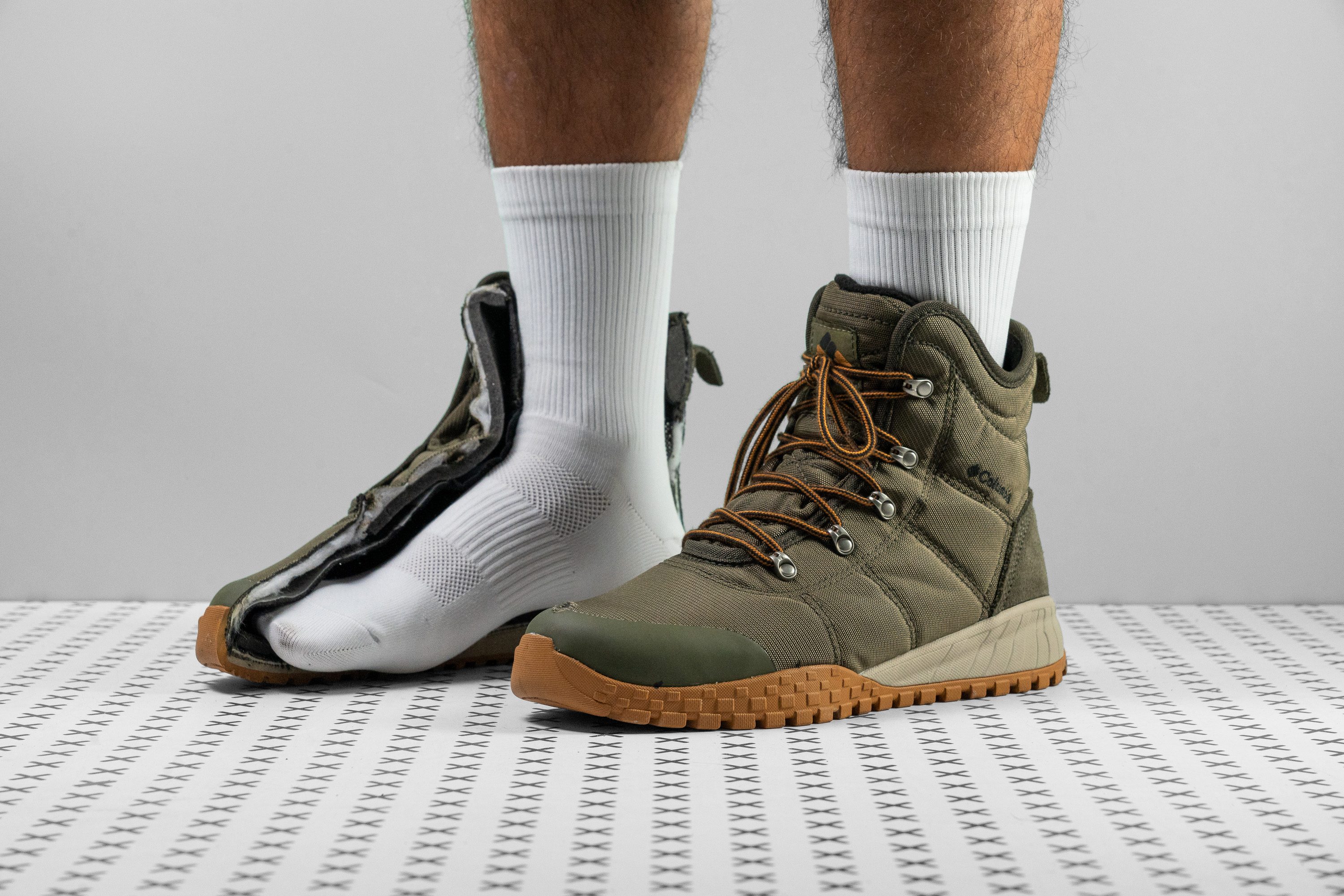Our verdict
- Top pick in best boots for light hiking
- Top pick in best Columbia hiking boots
Pros
- Extremely lightweight
- Keeps you warm in cold weather
- Effective waterproofing
- Amazingly comfortable
- Zero break-in period
- Soft cushioning
- Exceptionally flexible
- Hard-wearing outsole
- Reasonably priced
- Stylish design
Cons
- Not for serious hiking
- Not so sturdy Cordura
Audience verdict
- Top 25% in Columbia hiking boots
Comparison
The most similar hiking boots compared
+ + Add a shoe | |||||
|---|---|---|---|---|---|
| Audience score | 87 Great! | 89 Great! | 80 Good! | 85 Great! | |
| Price | $130 | $200 | $110 | $170 | |
| Trail terrain | Light | LightModerate | Light | Moderate | |
| Shock absorption | Moderate | Low | High | - | |
| Energy return | Moderate | Low | Moderate | - | |
| Weight lab Weight brand | 15.5 oz / 439g 15.7 oz / 444g | 17 oz / 482g 17 oz / 482g | 18 oz / 509g 15 oz / 425g | 18.2 oz / 515g 17.4 oz / 493g | |
| Lightweight | ✓ | ✓ | ✗ | ✗ | |
| Breathability | Warm | Warm | Warm | Warm | |
| Use | Light HikingUrban hikingBeginners | Day HikingLight HikingUrban hiking | Light HikingUrban hikingBeginners | BackpackingDay HikingLight Hiking | |
| Orthotic friendly | ✓ | ✓ | ✓ | ✓ | |
| Drop lab | 12.3 mm | 13.5 mm | 11.5 mm | 12.9 mm | |
| Size | True to size | True to size | True to size | True to size | |
| Midsole softness | Soft | Firm | Soft | Firm | |
| Difference in midsole softness in cold | Normal | Small | Big | Small | |
| Heel counter stiffness | Flexible | Stiff | Flexible | Flexible | |
| Stiffness | Flexible | Moderate | Flexible | Moderate | |
| Outsole hardness | Average | Very hard | Hard | Soft | |
| Waterproofing | Waterproof | Waterproof | Waterproof | Waterproof | |
| Material | Textile | Suede | SuedeTextile | Leather | |
| Season | Winter | Winter | Winter | Winter | |
| Toebox durability | Bad | Decent | - | Good | |
| Heel padding durability | Decent | Decent | - | Decent | |
| Outsole durability | Decent | Decent | - | Bad | |
| Width / fit | Narrow | Medium | Wide | Wide | |
| Toebox width | Narrow | Medium | Wide | Wide | |
| Lug depth | 3.0 mm | 3.7 mm | 3.5 mm | 4.2 mm | |
| Heel stack lab | 31.5 mm | 32.7 mm | 30.9 mm | 31.1 mm | |
| Forefoot | 19.2 mm | 19.2 mm | 19.4 mm | 18.2 mm | |
| Widths available | NormalWide | Normal | Normal | NormalWide | |
| Technology | - | Ortholite | - | Ortholite | |
| Cut | Mid cut | Mid cut | Mid cut | Mid cut | |
| Removable insole | ✓ | ✓ | ✓ | ✓ | |
| Ranking | #17 Top 42% | #8 Top 20% | #36 Bottom 12% | #24 Bottom 41% | |
| Popularity | #23 Bottom 43% | #29 Bottom 29% | #22 Bottom 46% | #30 Bottom 26% |
Who should buy
One of the lightest winter boots we have ever tested, the Columbia Fairbanks Omni-Heat Boot is a solid option if you:
- want a super comfy winter boot that feels more like a sneaker
- need an extra warm insulated boot (200g insulation)
- look for a versatile boot that can go from streets to trails
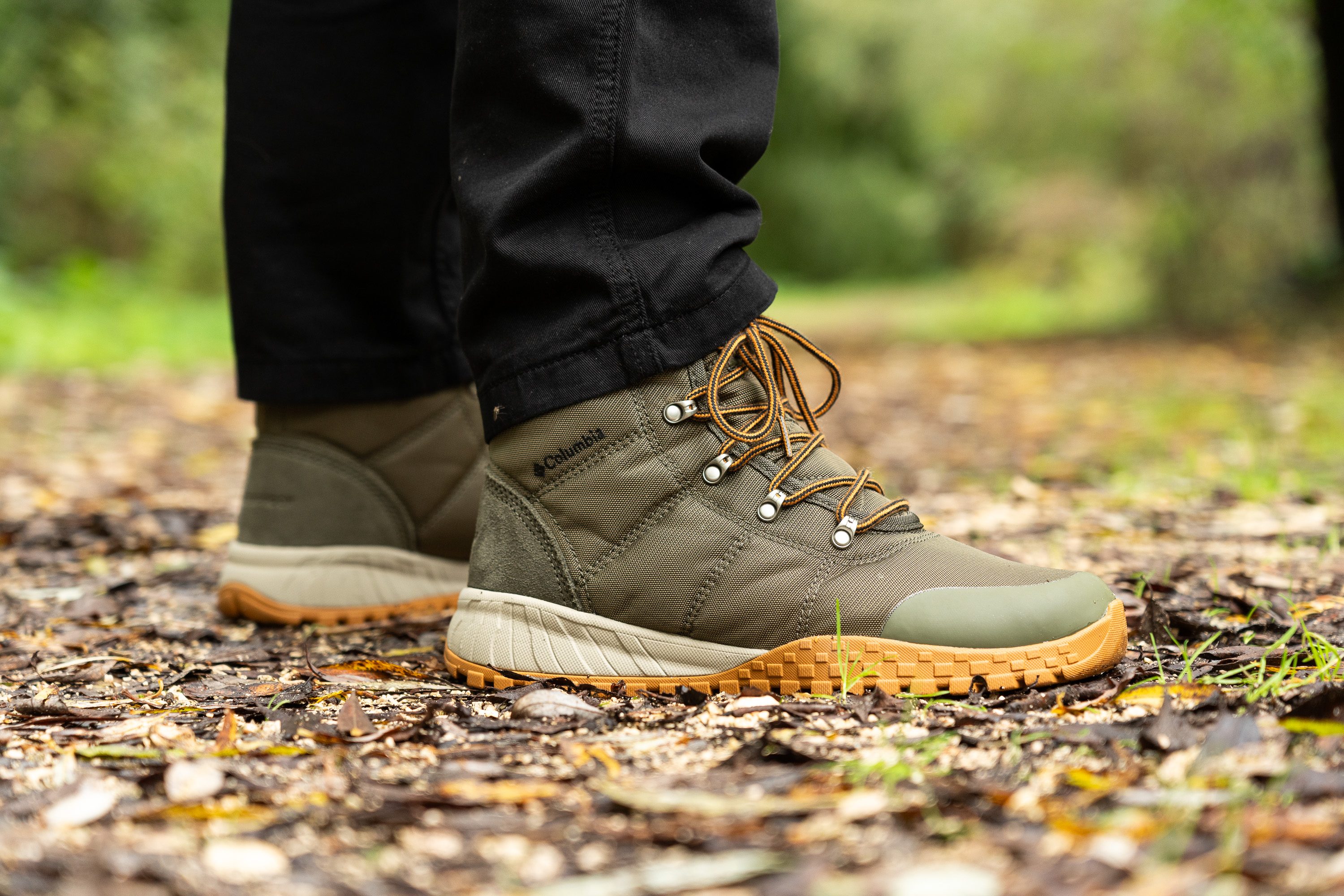
Who should NOT buy
If temperatures don't drop below 40°F (5°C) in your area, the Fairbanks Omni-Heat is going to be an overkill. We recommend its lightened version, the Fairbanks Mid, for warmer conditions.
On the other hand, if you need a maximized level of protection, try Columbia's burlier high-top Bugaboot III (also 200g of insulation).
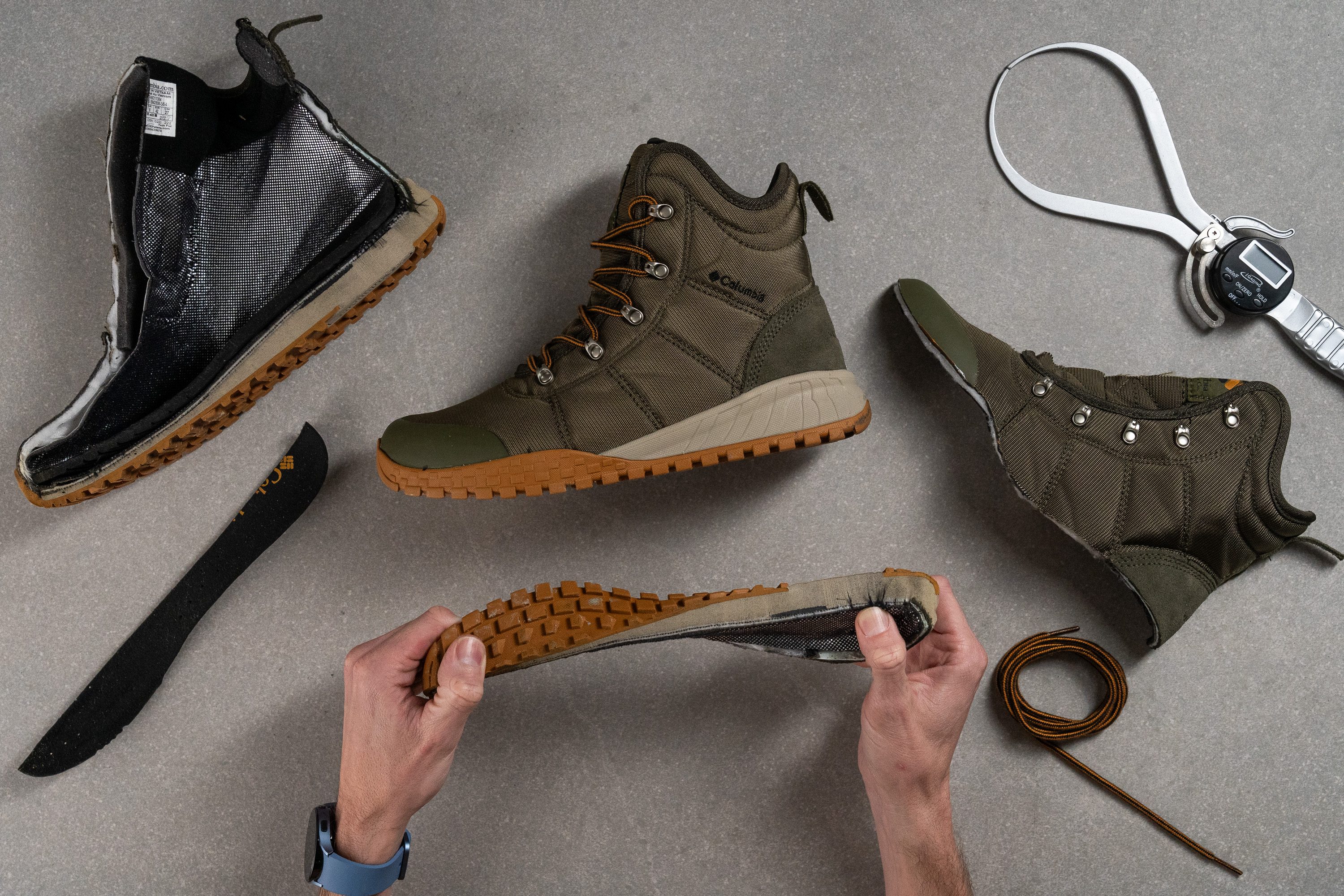
Cushioning
Shock absorption
The moderate shock absorption reading of this Columbia boot (99 SA) confirms the fact that it is better suited for light trails and urban hikes. But it does have good impact protection for a day hike.
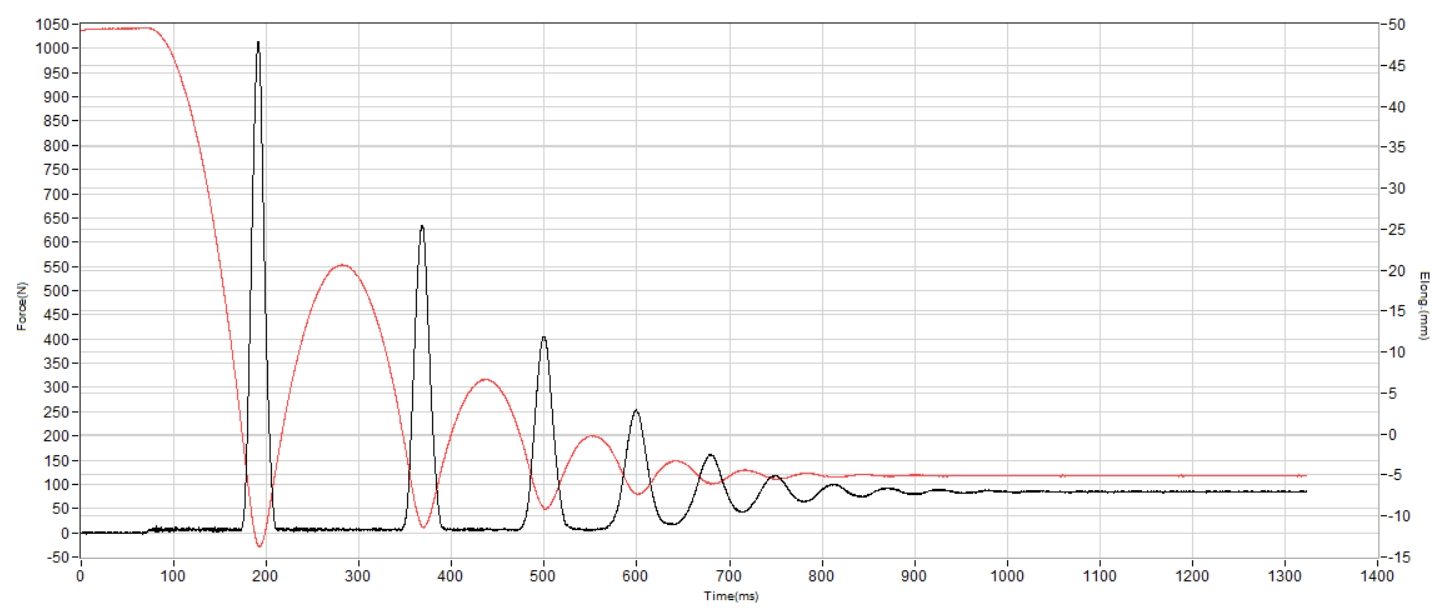
| Fairbanks Omni-Heat Boot | 99 SA |
| Average | 93 SA |
Energy return
The Fairbanks Omni-Heat is decently responsive with a middle-ground energy return of 50.4%. There is no notable springback but the boot is not completely dull either.
| Fairbanks Omni-Heat Boot | 50.4% |
| Average | 50.5% |
Heel stack
Granted, this boot is not among the most cushioned ones. Measuring its heel stack with a caliper, we got only 30.8 mm.
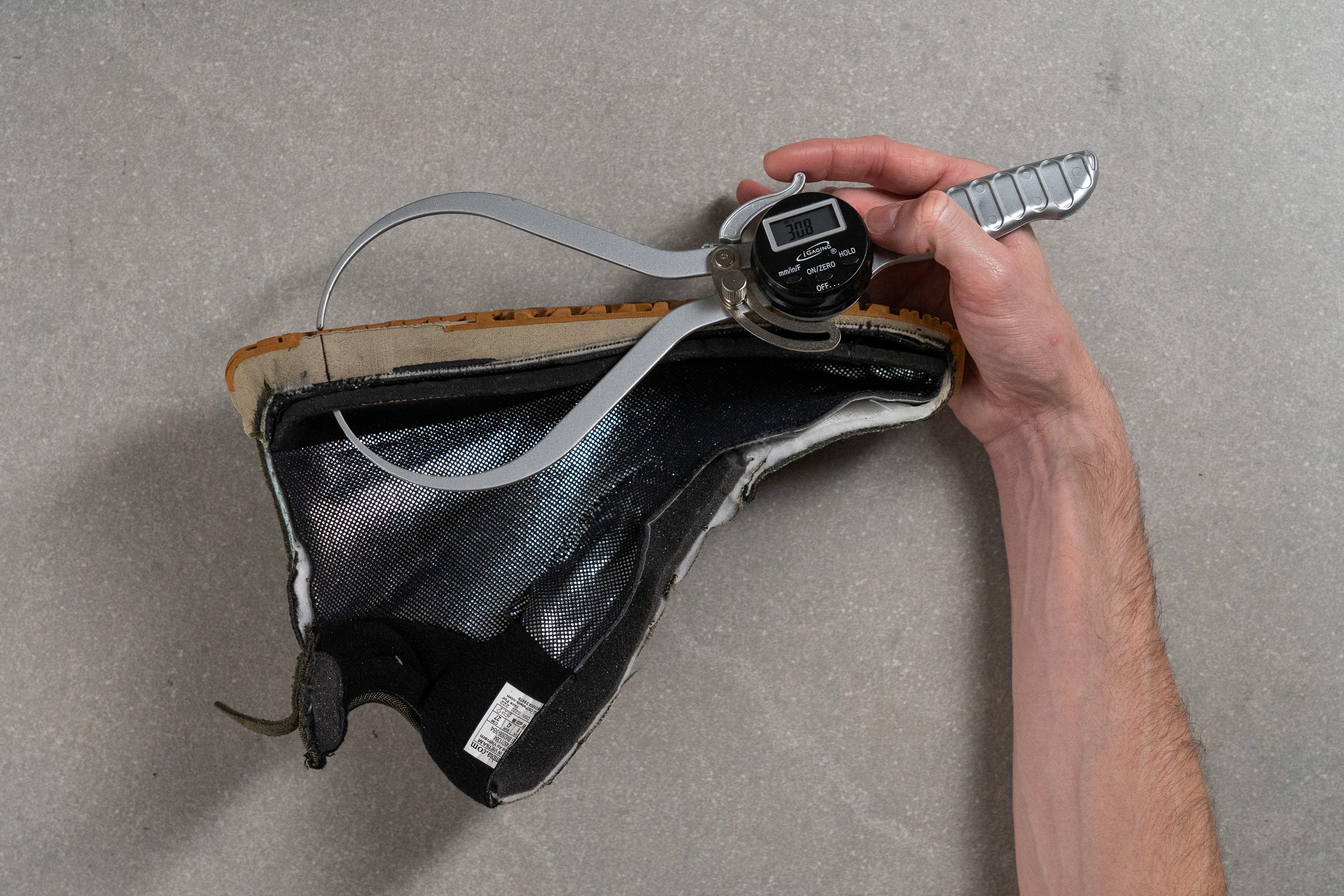
This is notably lighter than the average hiking boot and feels minimalist compared to another popular winter boot from Columbia, the Bugaboot III (46.9 mm).
In terms of impact protection, we found the Fairbanks to be sufficiently cushioned. But some people may prefer a taller platform for winter months to keep their feet higher off the cold ground.
| Fairbanks Omni-Heat Boot | 31.5 mm |
| Average | 36.3 mm |
Forefoot stack
This boot also proved to be low-profile under the toes. With a 19.2 mm forefoot stack, it placed the foot a few millimeters closer to the ground than other boots.
This is what makes the Fairbanks feel so different from a typical boot. You have to cut off the platform to get a lighter and more flexible pair.
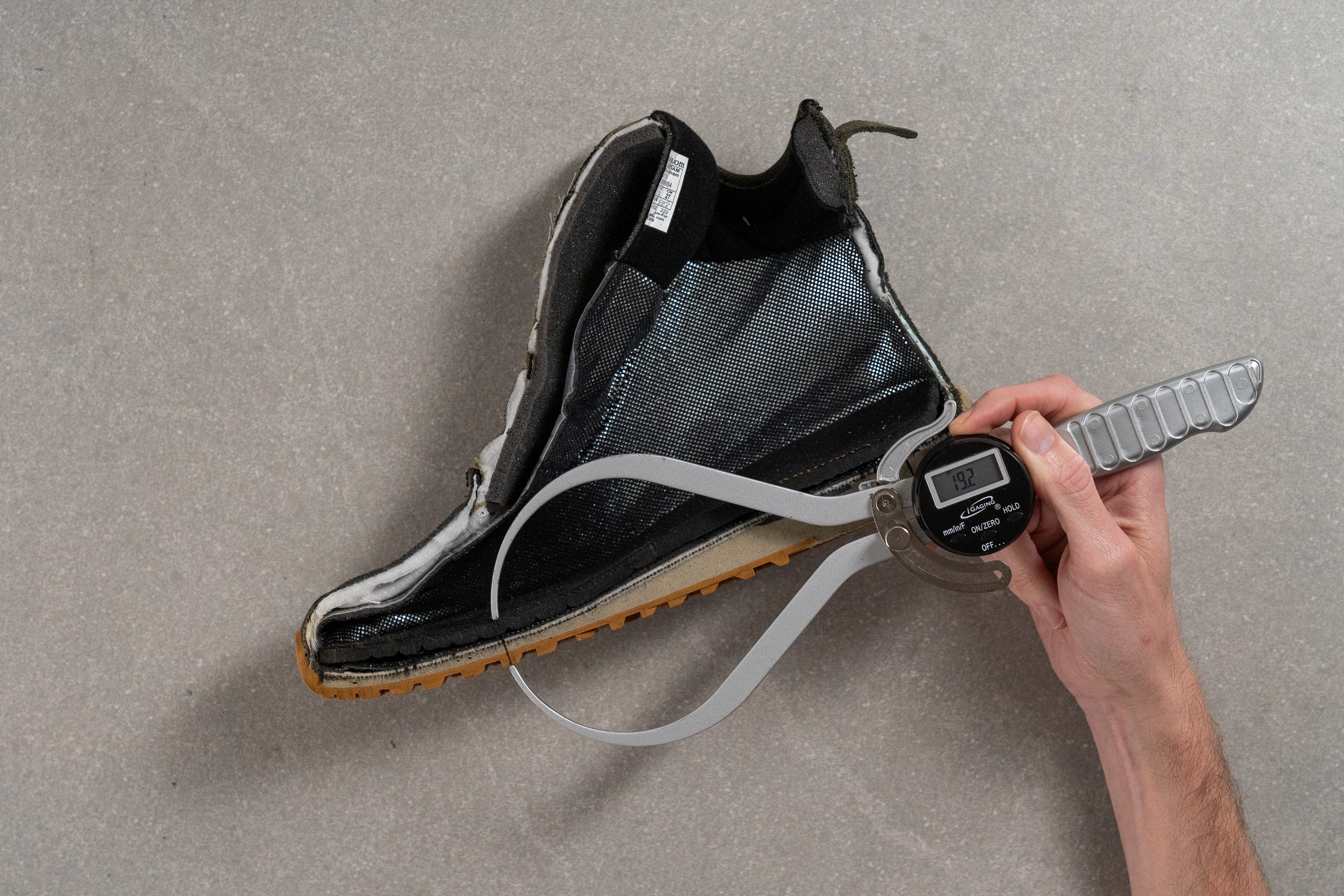
| Fairbanks Omni-Heat Boot | 19.2 mm |
| Average | 23.0 mm |
Drop
Looking at the difference in stack heights, we get a drop of 11.6 mm. This is a typical drop for a hiking boot.
Having a raised heel helps to relieve the pressure from the Achilles and calves, especially if you are carrying a backpack.
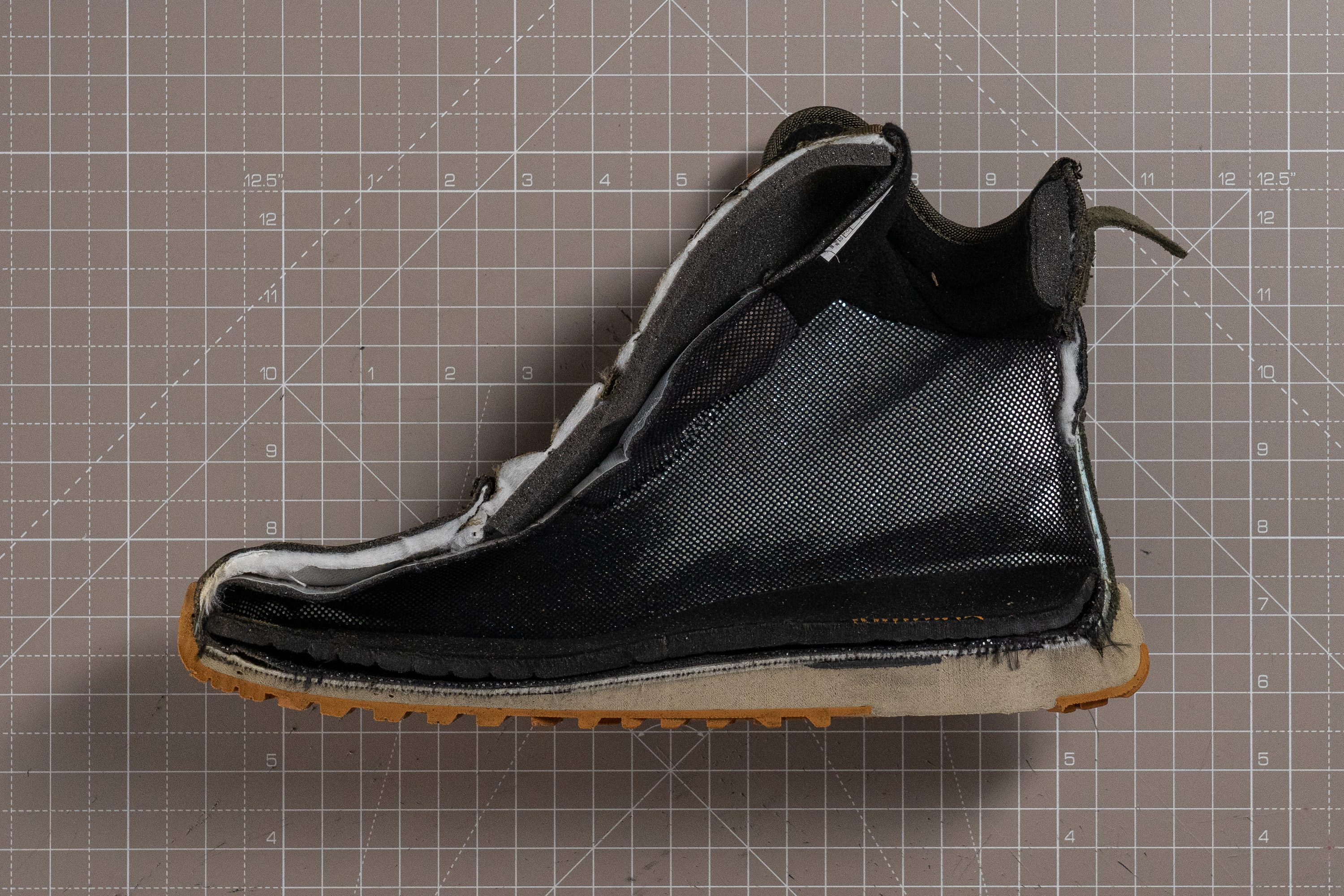
| Fairbanks Omni-Heat Boot | 12.3 mm |
| Average | 13.3 mm |
Midsole softness
Walking in the Columbia Fairbanks feels pleasurable for one more reason - its cushioning is softer than usual! Seems like the boot's Techlite Comfort System lives up to its name.
Our experience was backed up by the durometer measurements too. With a reading of 18.9 HA, the boot's foam is 33% plusher than the average!
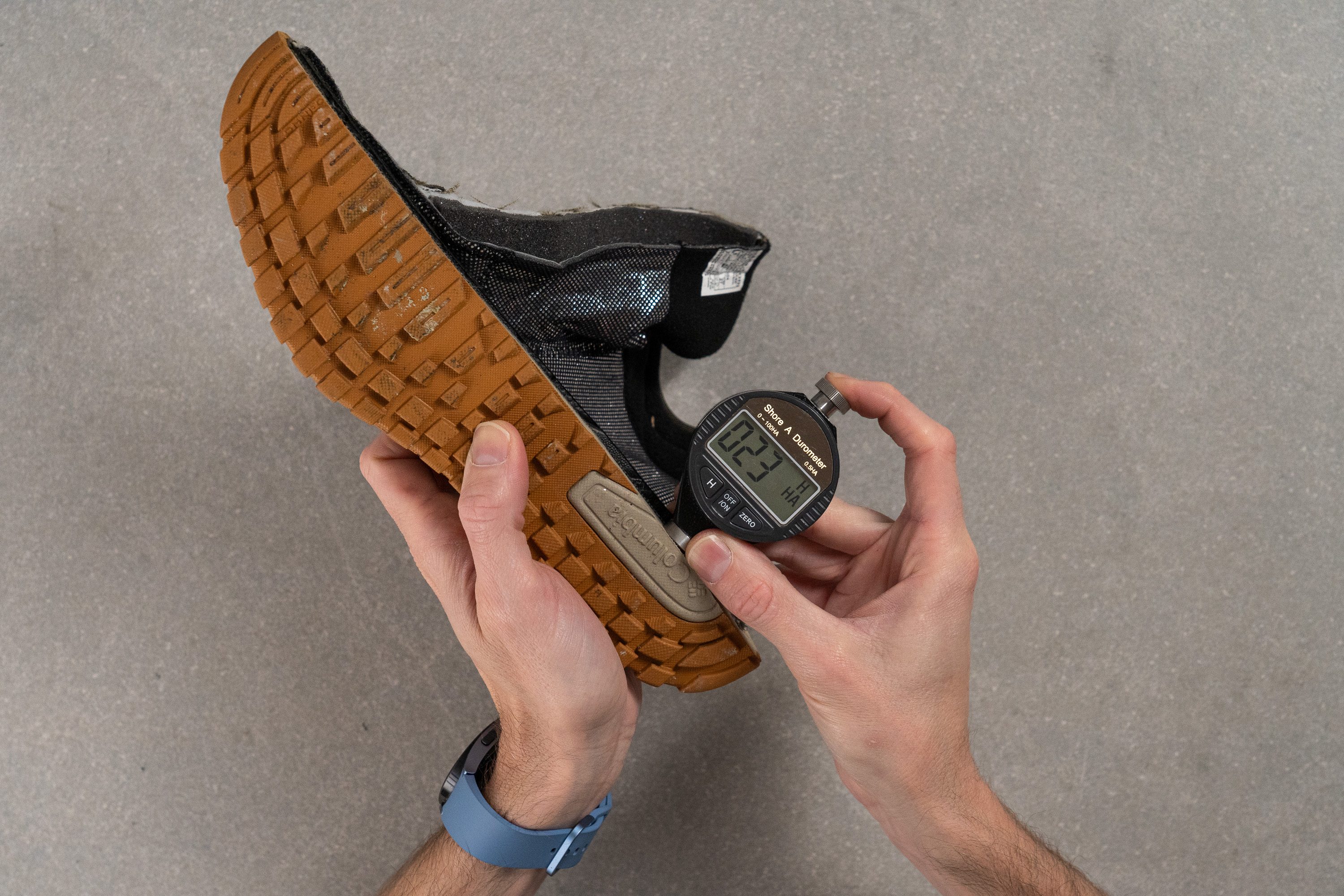
| Fairbanks Omni-Heat Boot | 18.9 HA |
| Average | 28.4 HA |
Size and fit
Size
Columbia Fairbanks Omni-Heat Boot fits true to size (22 votes).
Internal length
| Fairbanks Omni-Heat Boot | 274.7 mm |
| Average | 271.4 mm |
Width / Fit
We found that the Fairbanks Omni-Heat offers a pretty close-fitting experience for a standard D medium width which makes the boot more appealing to those with medium-to-narrow feet. However, you can get more real estate for the toes by opting for the boot's wide version.
Our observations were backed up by the lab data. Having filled the boot's interiors with our custom gel, we were able to measure the widest part of the boot once the mold solidified.
And indeed, our caliper showed a narrower-than-average reading of 89.7 mm.
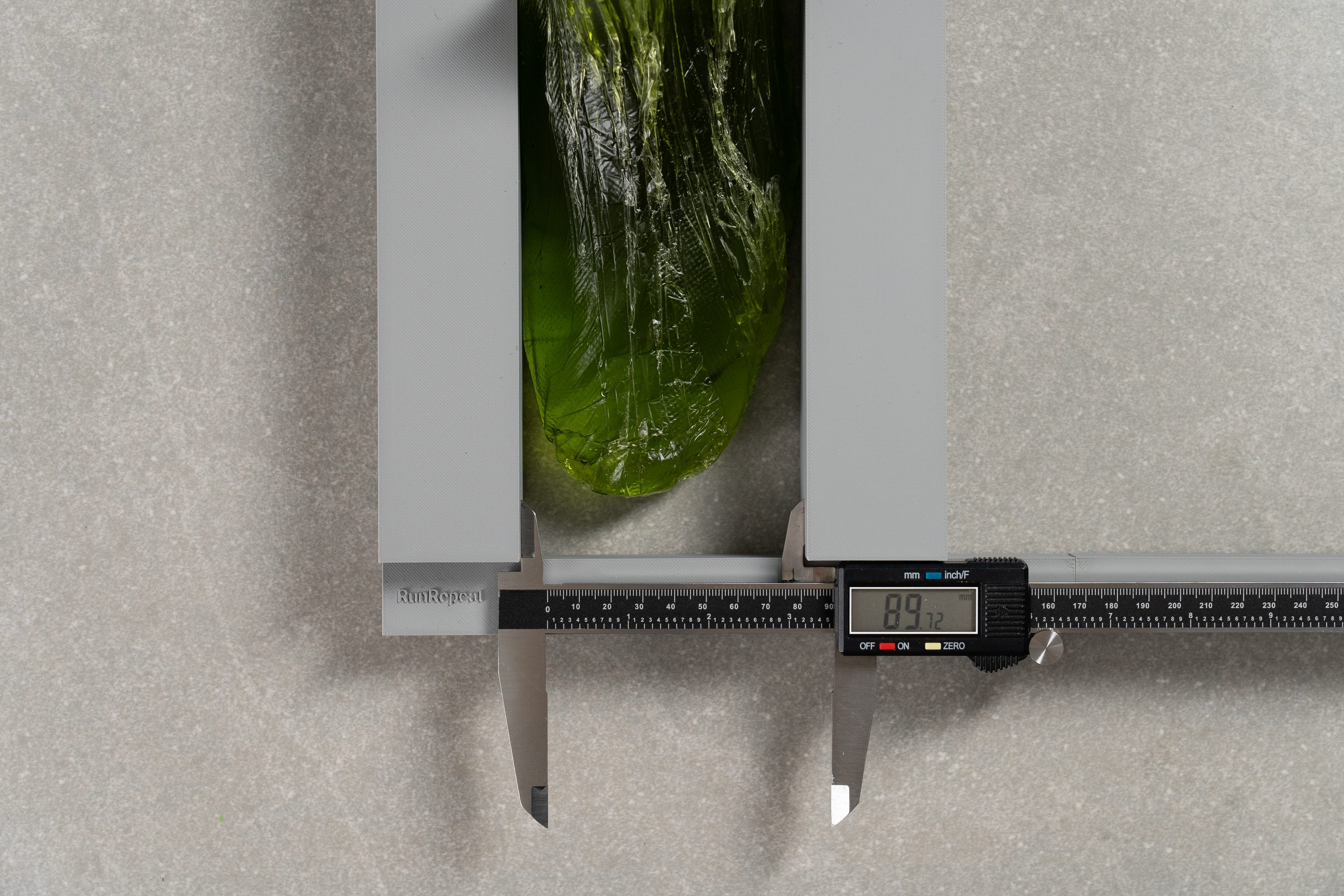
| Fairbanks Omni-Heat Boot | 89.7 mm |
| Average | 93.8 mm |
Toebox width
What's more, the boot also shows a tangible taper angle towards the toes. Our caliper returned another below-average width of 66.4 mm near the big toe.
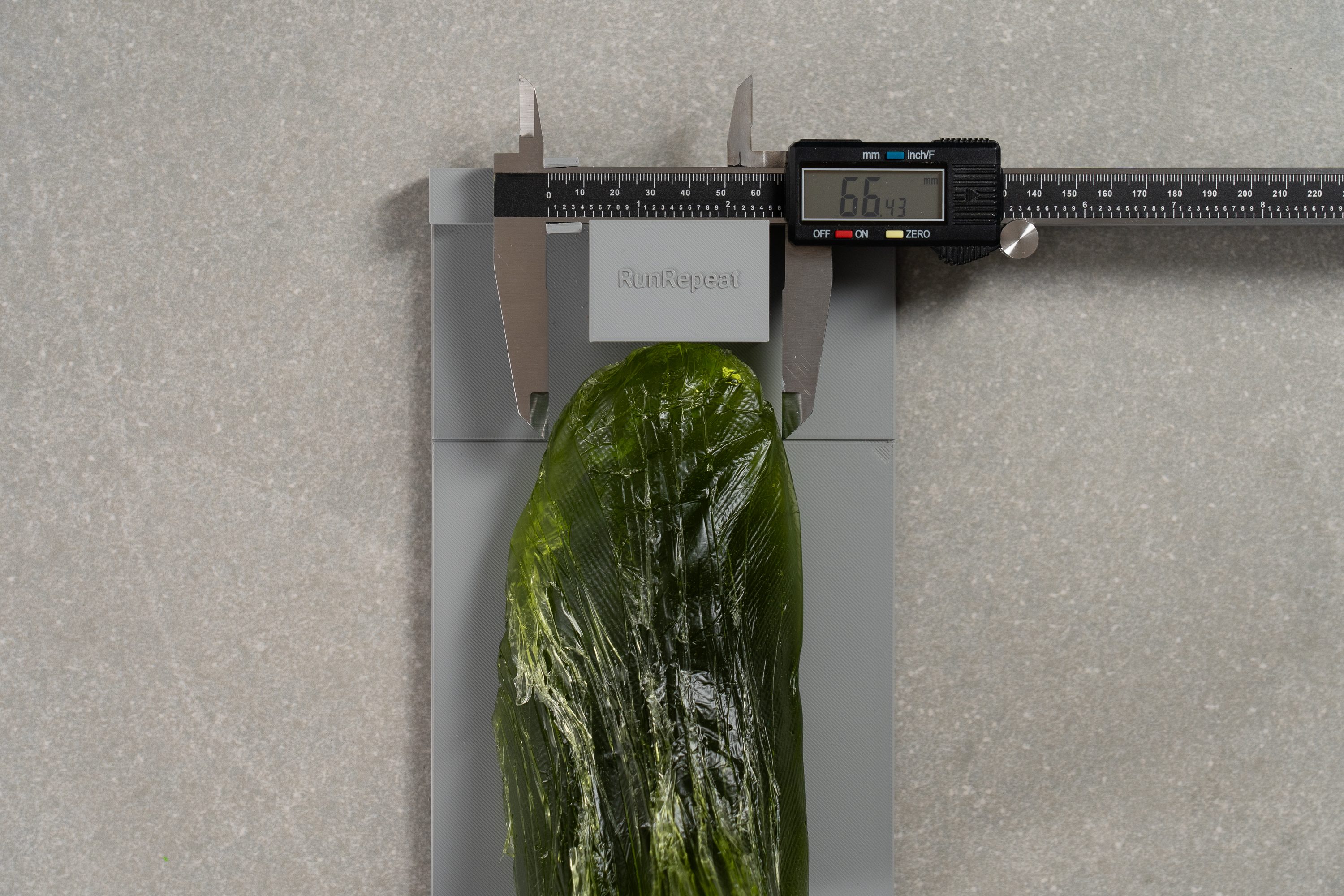
| Fairbanks Omni-Heat Boot | 66.4 mm |
| Average | 71.2 mm |
Toebox height
A notably shallow toebox height of 22.7 mm contributes to the boot's snug fit.
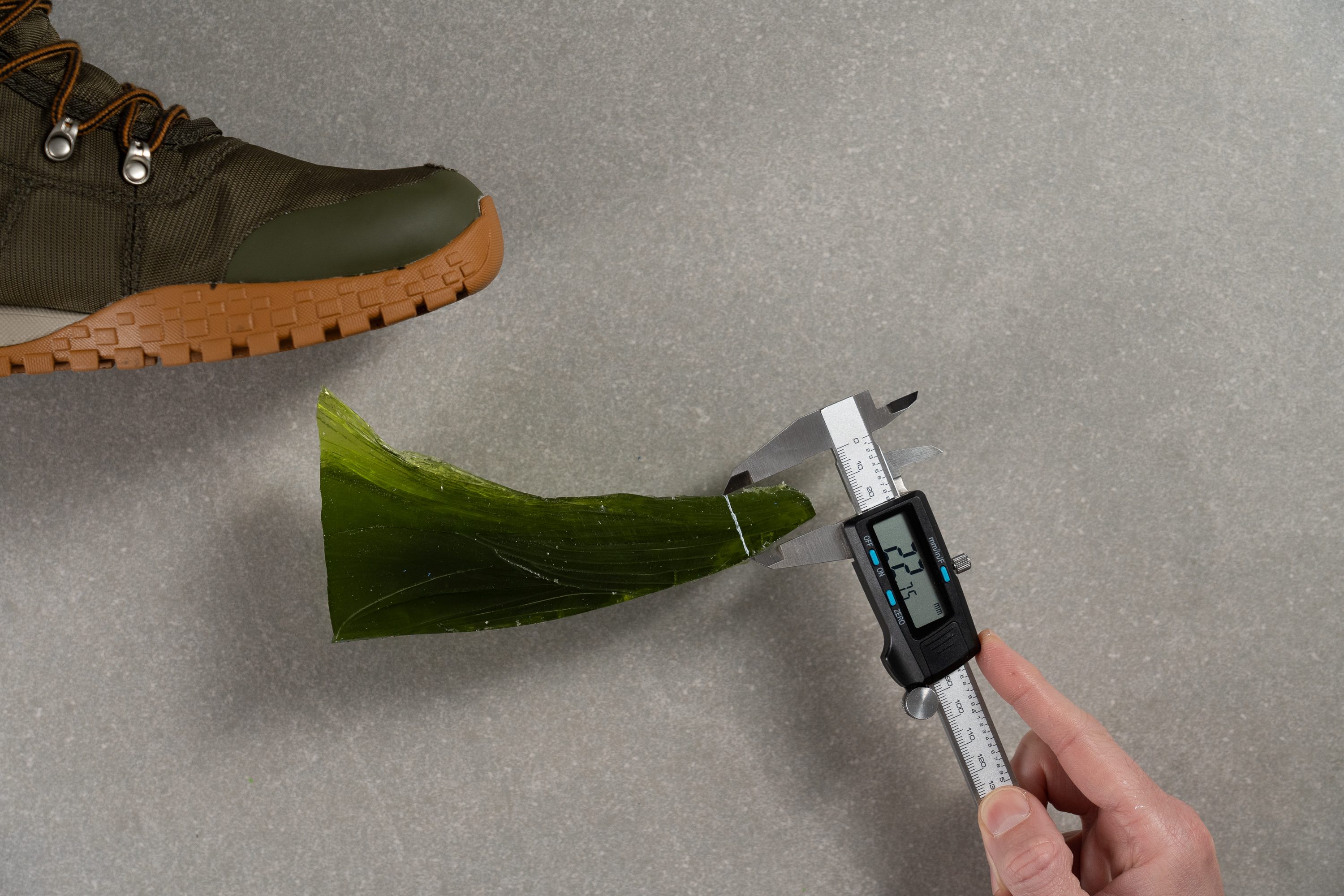
| Fairbanks Omni-Heat Boot | 22.7 mm |
| Average | 27.4 mm |
Traction / Grip
Lug depth
Measuring the lug depth on the Fairbanks Omni-Heat, we got 3.0 mm. This is not the kind of treading you need for technical trails and slippery slopes.
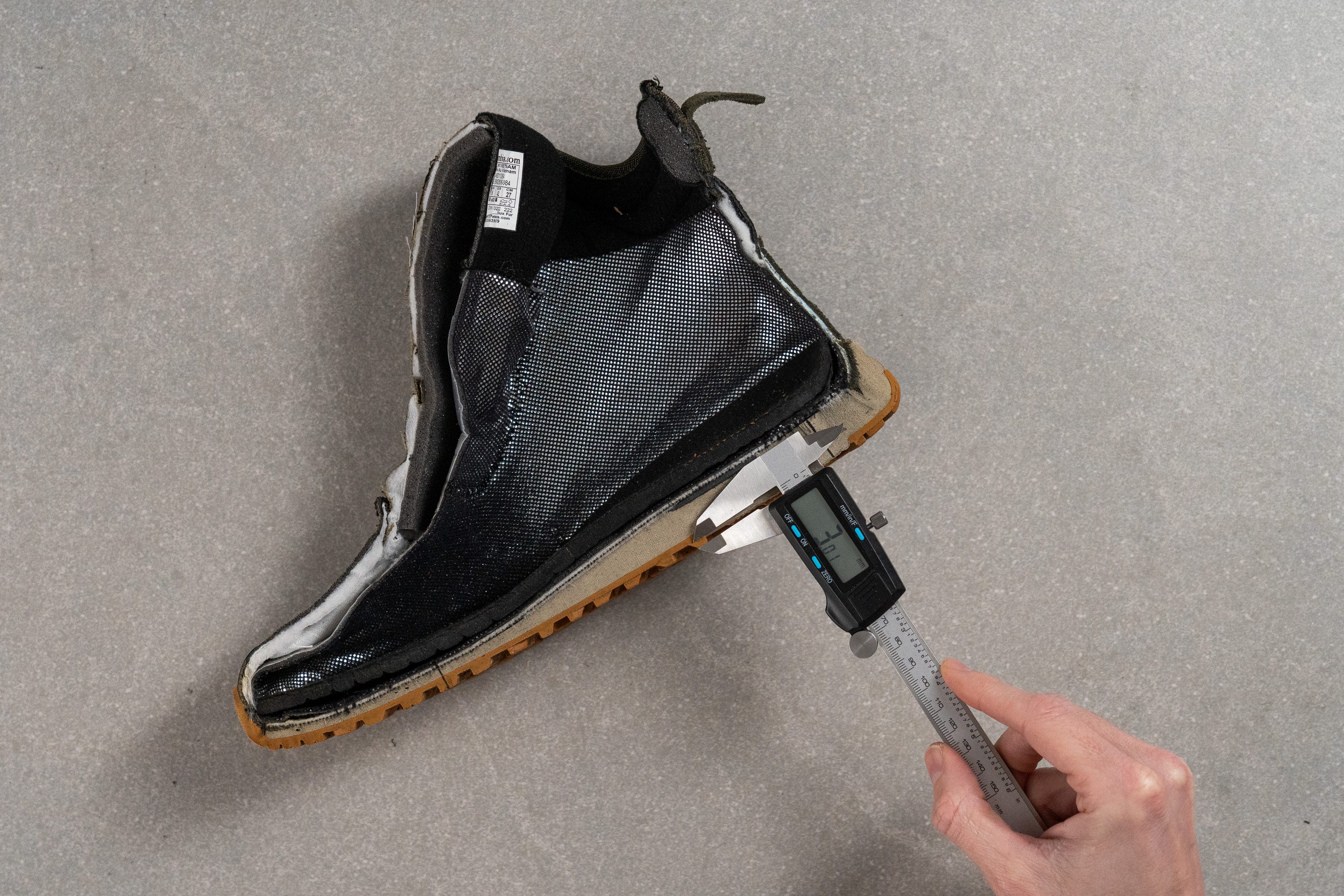
We recommend sticking to less challenging and more even terrains when wearing this Columbia boot. It can handle moderate amounts of slush, ice, and snow but only on level ground.
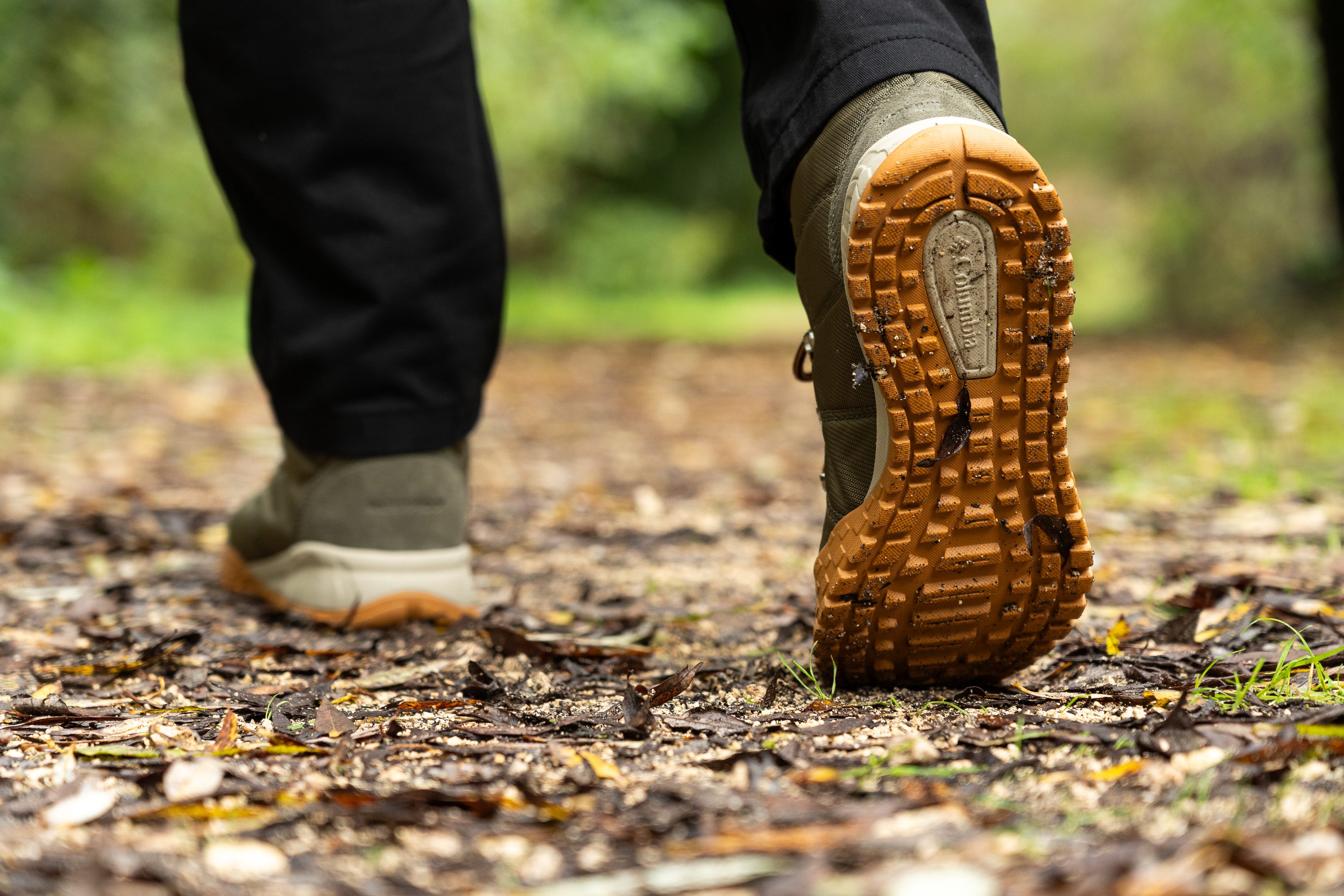
| Fairbanks Omni-Heat Boot | 3.0 mm |
| Average | 4.3 mm |
Flexibility / Stiffness
The Fairbanks Omni-Heat is by far the most flexible winter boot we've tested. It is even bendier than some trail running shoes!
To find out exactly how pliable this boot is, our flexibility testing machine measured the force it takes to bend it to a 30-degree angle. Showing as little as 12.0N, this Columbia boot is more flexible than average by over 60%!
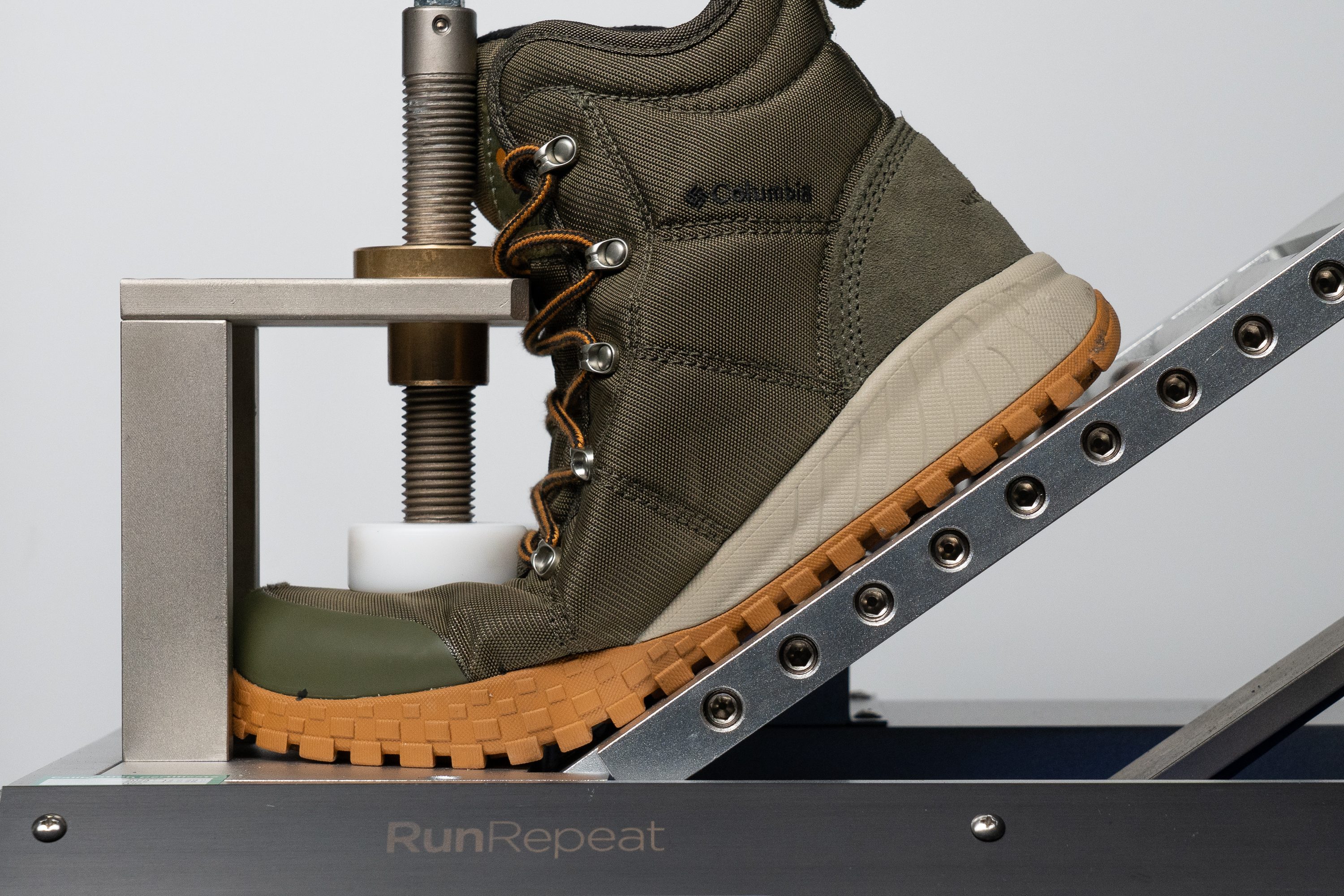
| Fairbanks Omni-Heat Boot | 12.0N |
| Average | 31.5N |
Stiffness in cold (%)
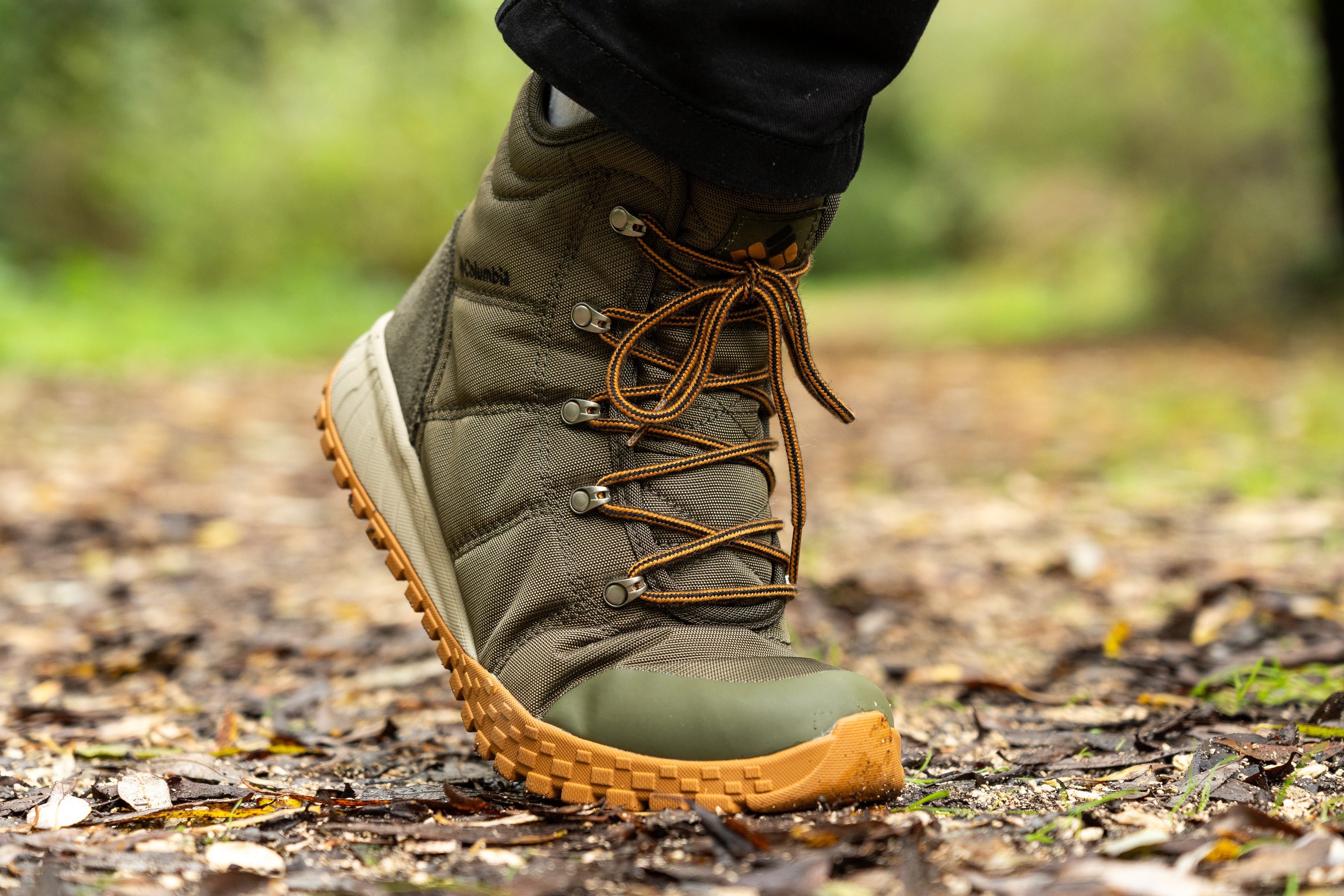
Weight
If you despise winter for having to wear heavy coats and boots, the Fairbanks is here to take care of the latter!
This Columbia boot blew our minds with its unmatched lightness. In a men's US size 9, the Fairbanks Omni-Heat weighs only 15.5 oz (439g)!
It is more than 3 oz lighter than winter boots on average (18.8 oz/532g)! On foot, it actually feels like a high-top sneaker.
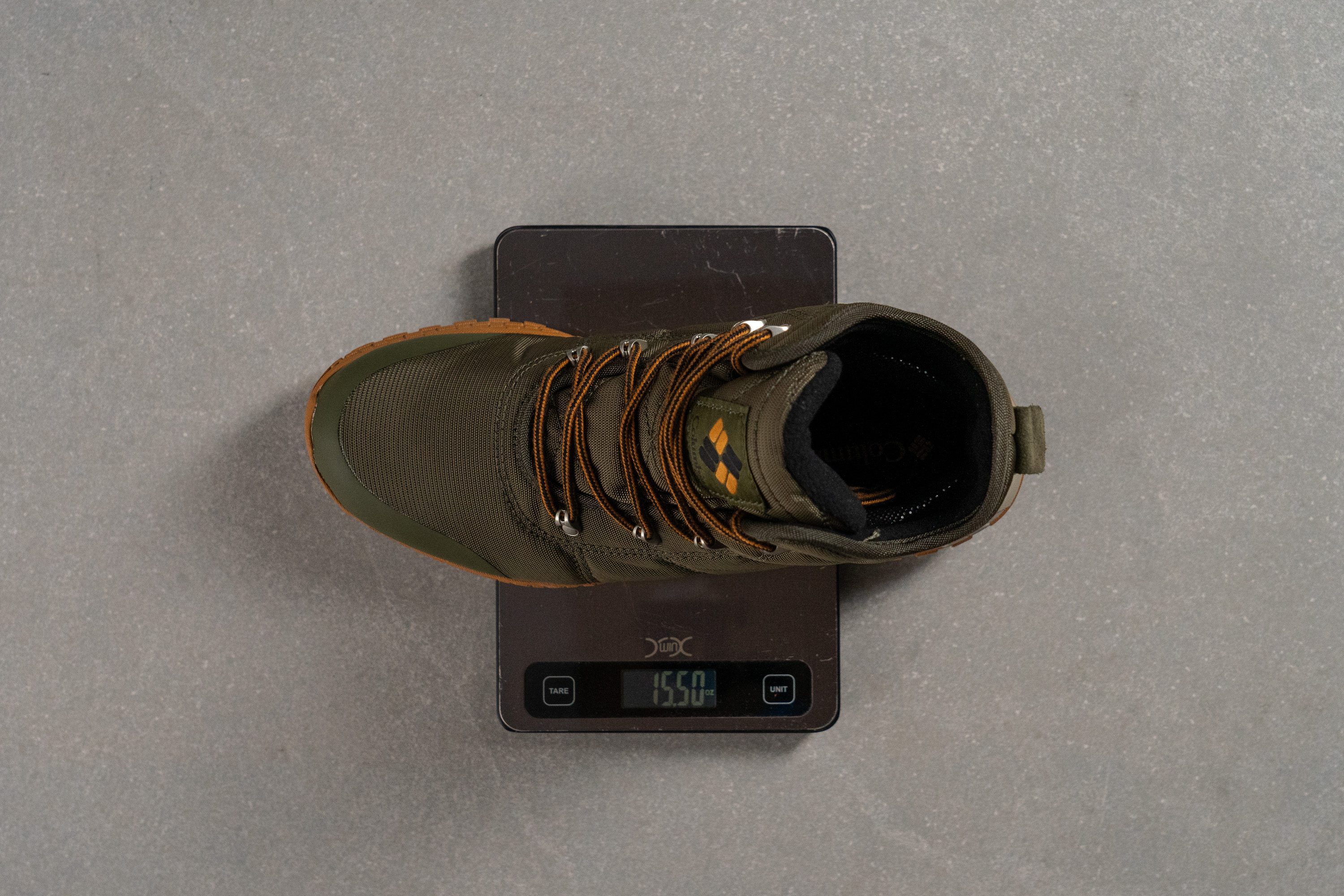
| Fairbanks Omni-Heat Boot | 15.5 oz (439g) |
| Average | 18.7 oz (531g) |
Breathability
It is pretty self-explanatory that an insulated winter boot is not a breathable one. But we still put the Fairbanks Omni-Heat boot through our smoke-pumping test to prove it.
With not even a hint of smoke passing through the boot's upper, we can confirm that this Columbia boot is sealed. On a 1-5 scale, where 5 is the most breathable, we gave it the minimum score of 1.
According to Columbia, the Fairbanks features a sturdy Cordura fabric for the upper.

Having a look at it through our microscope, we can see how incredibly tightly woven this textile is. It definitely adds airtightness to the boot.
| Fairbanks Omni-Heat Boot | 1 |
| Average | 1.3 |
Waterproofing
The interiors of this Fairbanks boot are lined with the Omni-Tech, the brand's proprietary waterproof membrane that is attached through seam-sealed construction.
Even though it's not the world-famous Gore-Tex membrane, we found it to be highly effective in downpours and snow.
Insulation
As an amazing partner for the winter, this boot is packed with 200 grams of insulation under the Omni-Heat reflective lining. The idea behind it is that the tiny silver dots with aluminum will reflect the heat generated by the body and keep it inside the boot.
On freezing days (below 30°F/0°C), we were ecstatic to have this Columbia boot on as it created a really warm environment for our feet.
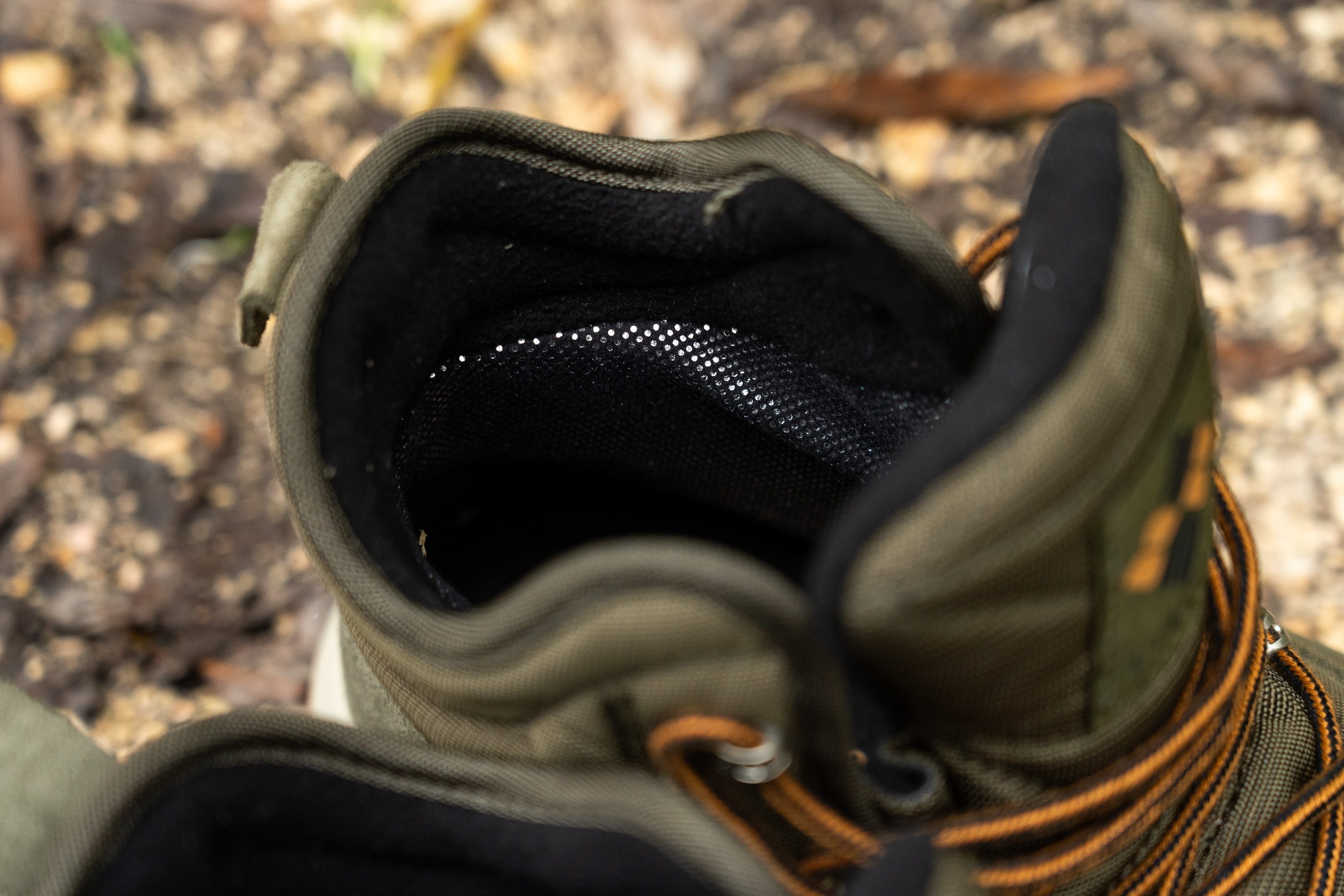
Stability
Lateral stability test
Let's get this straight: the Columbia Fairbanks Omni-Heat is NOT the boot you want for backpacking or hiking on technical terrain.
Thus, we just cannot expect it to be as stable and supportive as the Salomon X Ultra 4 Mid GTX for example.
But if we treat it like a casual boot for light and urban hiking, it is certainly stable enough for that. The primary reason behind it is the boot's low platform.
Torsional rigidity
The Fairbanks Omni-Heat is all about natural foot movement. It feels very different from a traditional stiff hiker.
First of all, it's got no shank or any other stabilizing features inside the midsole. Twisting the boot in our manual test made us think that we could do yoga in it.
Torsional rigidity is nearly absent here and gets a low score of 2 out of 5.
| Fairbanks Omni-Heat Boot | 2 |
| Average | 4.4 |
Heel counter stiffness
As our squeeze-and-push test revealed, the boot has absolutely no structure in the collar either! We gave it the lowest rating of 1 out of 5 for stiffness.
While some people like such freedom of movement, many are used to having solid ankle support in their boots. For that reason, we cannot recommend the Fairbanks to folks with severe overpronation.
| Fairbanks Omni-Heat Boot | 1 |
| Average | 3.6 |
Midsole width - forefoot
The base of the Columbia Fairbanks Omni-Heat is not particularly wide or narrow. In the widest part of the forefoot, we measured its sole at 114.3 mm, just the same as the average.
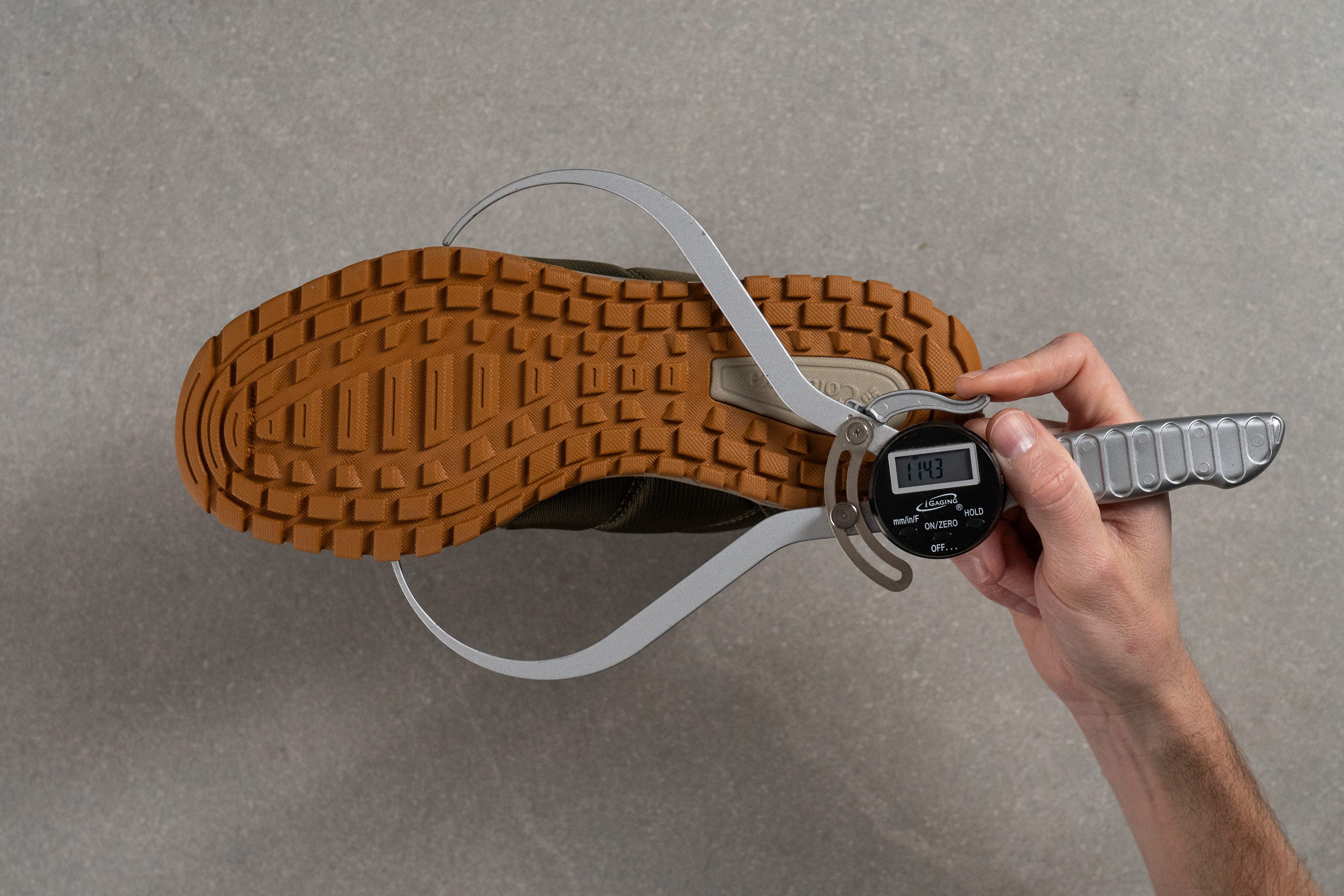
| Fairbanks Omni-Heat Boot | 114.3 mm |
| Average | 111.5 mm |
Midsole width - heel
As for the widest part of the heel, it turns out to be a little narrower than average at 84.6. But if you keep this boot to hard-packed and well-maintained trails, it won't be an issue at all.
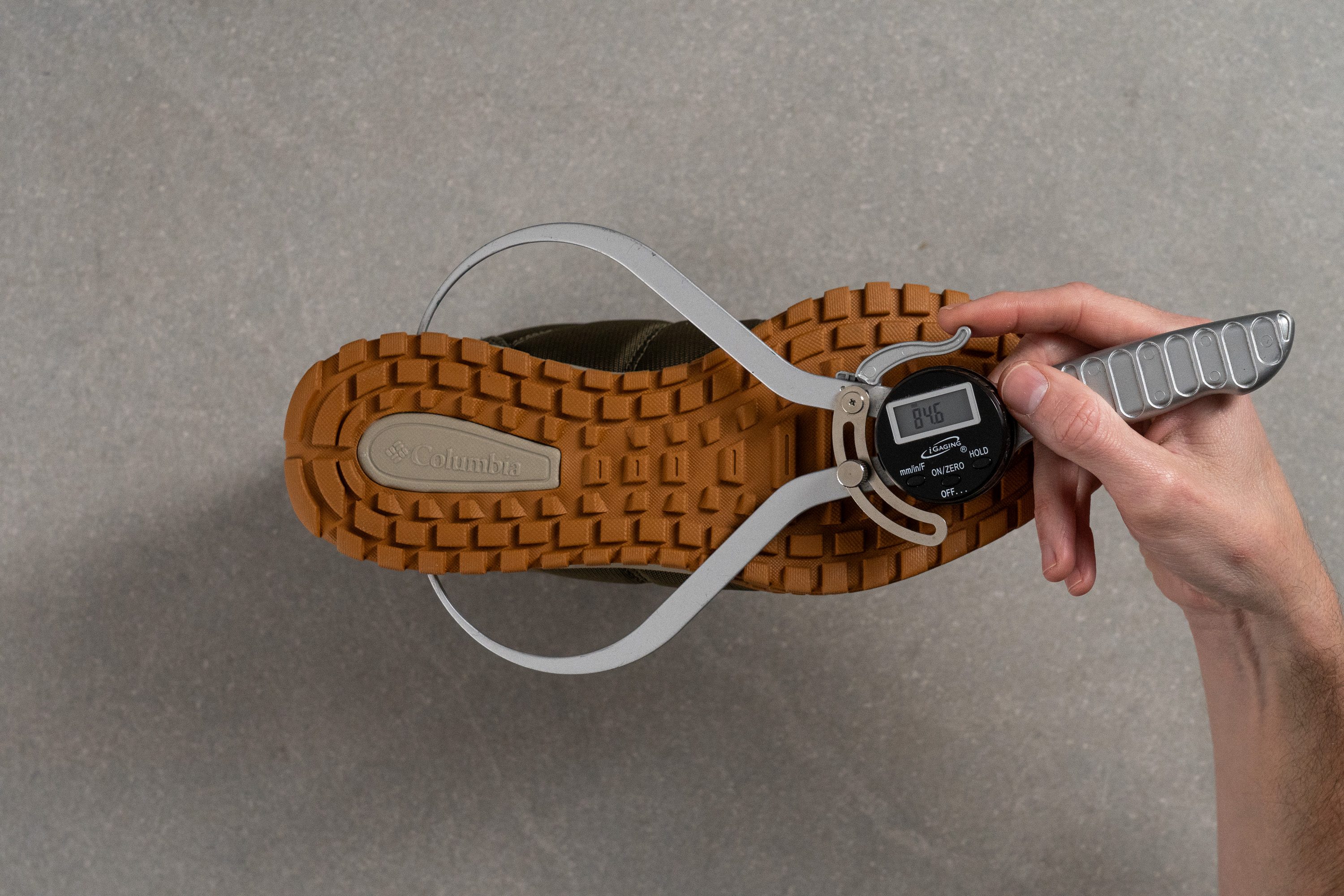
| Fairbanks Omni-Heat Boot | 84.6 mm |
| Average | 87.6 mm |
Durability
Toebox durability
Columbia claims that the Fairbanks' upper is made of Cordura. This sturdy fabric is known to be used in military wear thanks to its resistance to abrasion, scuffs, and tears. But is it just as durable on this Columbia boot?
Unfortunately, our durability test proved otherwise.
Using a Dremel, we drilled the boot's toebox at a 5K RPM speed for 12 seconds. The result was quite discouraging as the textile tore much easier compared to other hiking boots.
For that reason, we had to rate it with a lower-than-average score of 3.
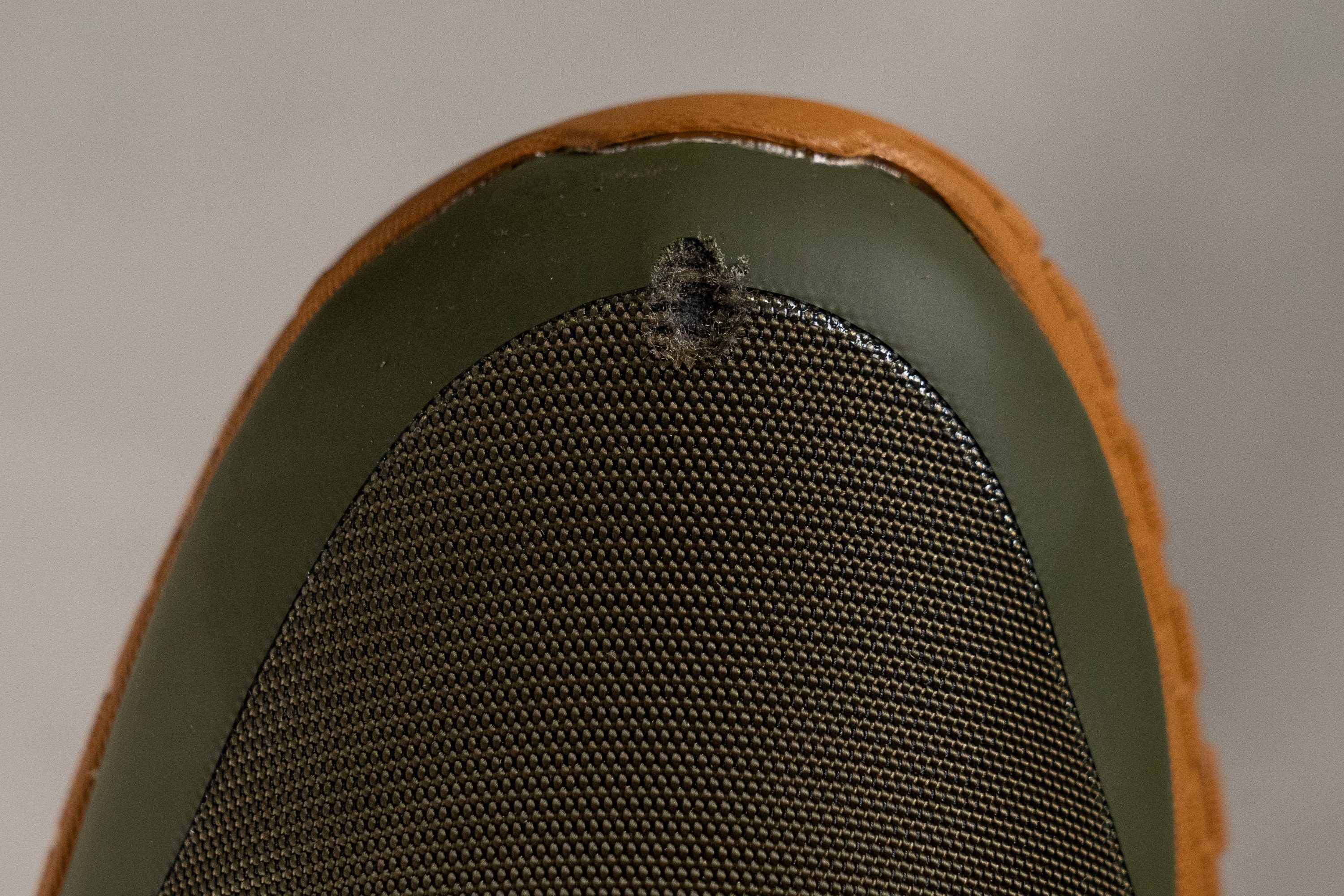
For reference, the Salomon Outpulse Mid GTX's textile upper did much better in the same test, earning a higher score of 4.
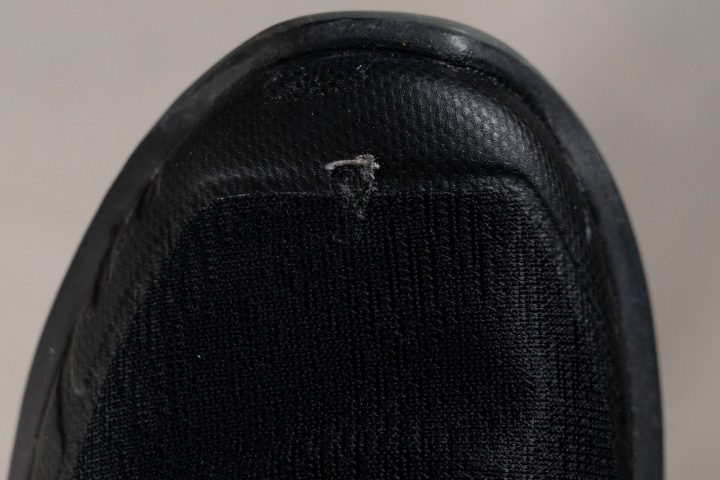
| Fairbanks Omni-Heat Boot | 3 |
| Average | 4.3 |
Heel padding durability
On the other hand, the boot's interior lining showed much better wear resistance in the Dremel test.
After 4 seconds of drilling, the damage was minor enough to rate this boot's heel padding durability as 4 out of 5.
Knowing that the Omni-Heat lining doesn't scuff so easily is reassuring for a winter boot.
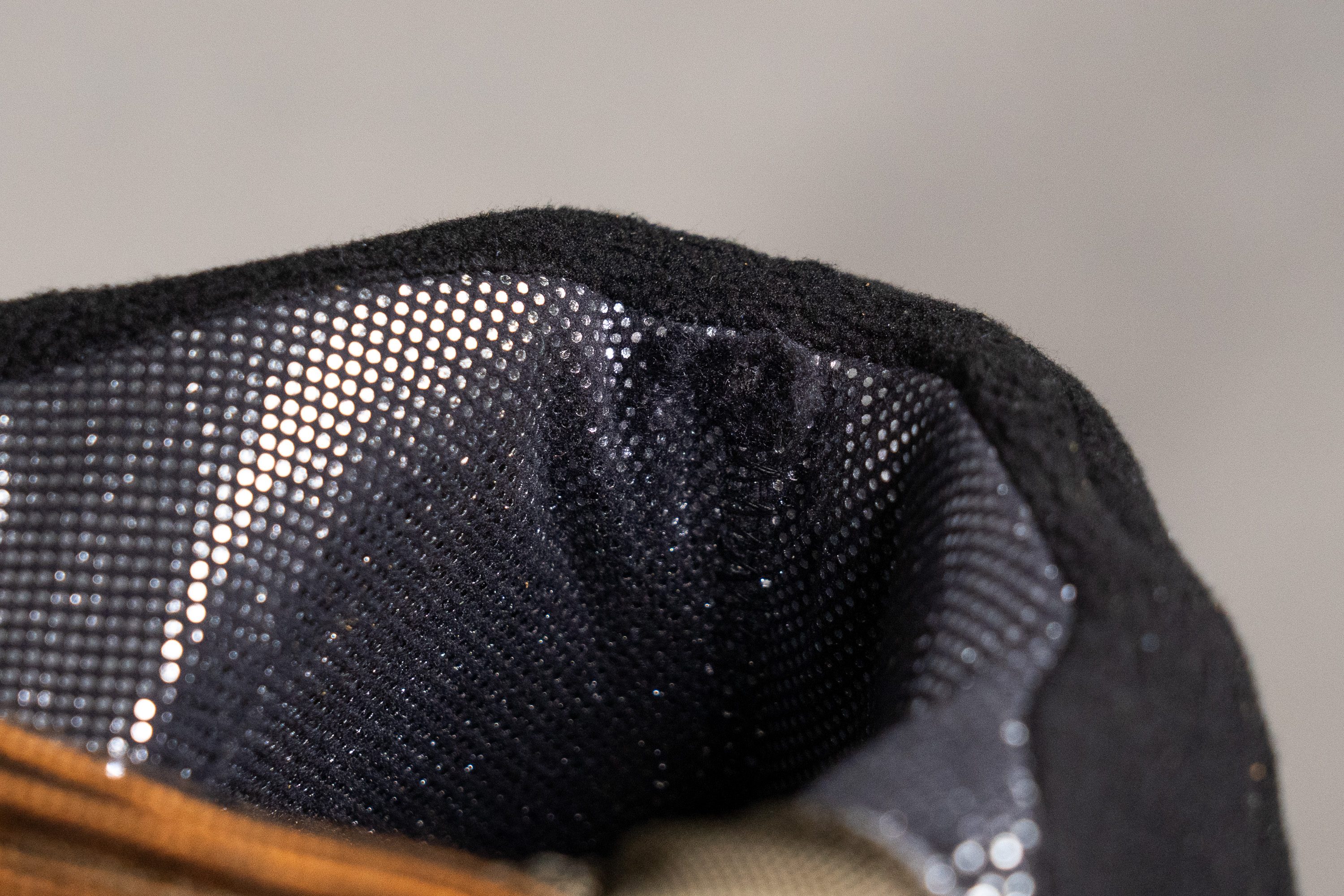
| Fairbanks Omni-Heat Boot | 4 |
| Average | 3.6 |
Outsole hardness
Even though the Columbia Fairbanks Omni-Heat is not meant as a dedicated hiking boot, its outsole game is on par with some serious boots!
First of all, it's made of a pretty hard rubber compound. Based on our durometer, it comes in at 87.5 HC which is the same as the average of hiking footwear.
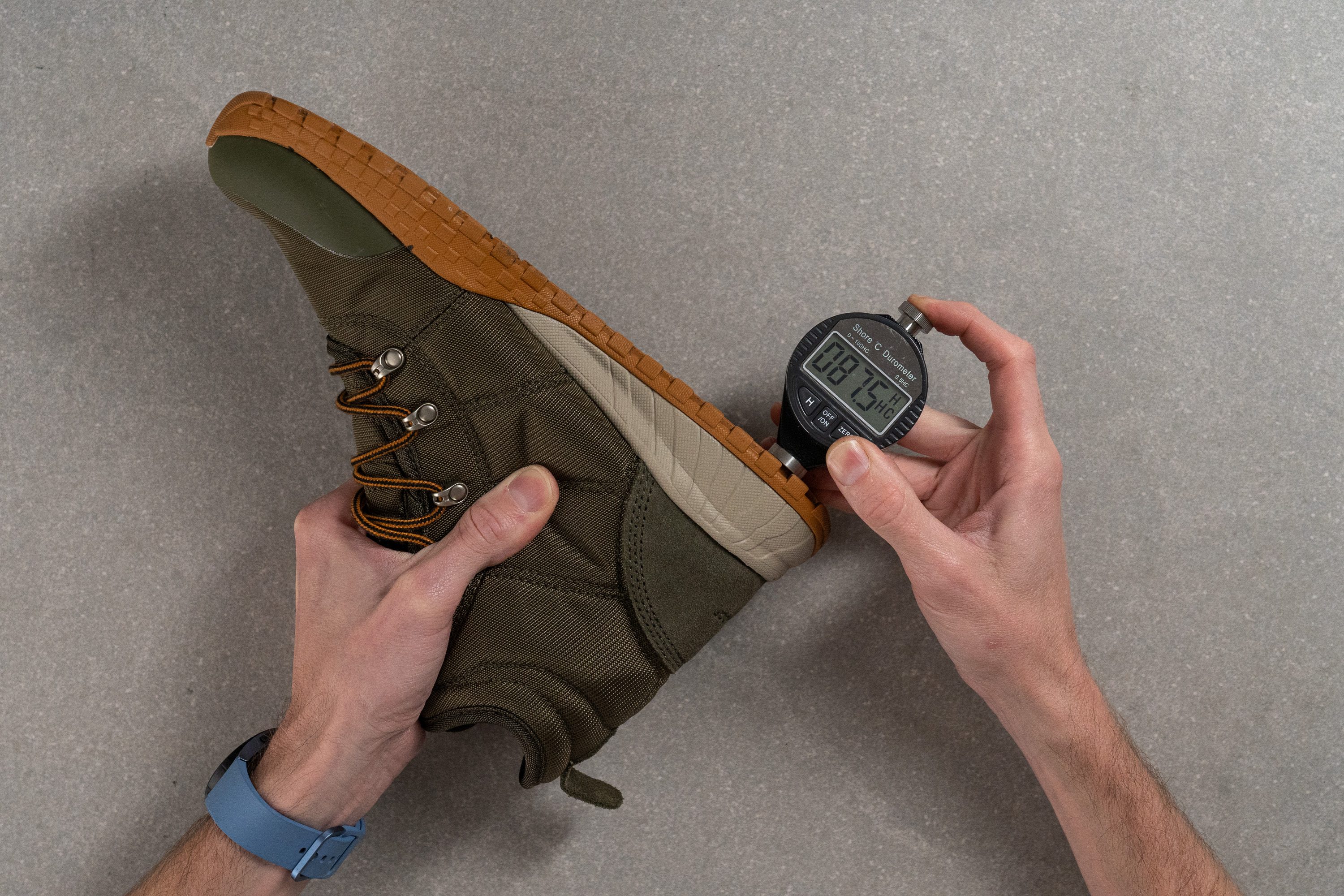
| Fairbanks Omni-Heat Boot | 87.5 HC |
| Average | 87.1 HC |
Outsole durability
Secondly, this rubber is not afraid of our Dremel. Drilling it for a good 22 seconds at a relentless speed of 10K RPM, the tool only caused a minor dent.
We used a tread gauge to measure the dent and got only 1.0 mm. This is how dpep the Dremel typically goes in hiking boots.
Great job, Columbia!
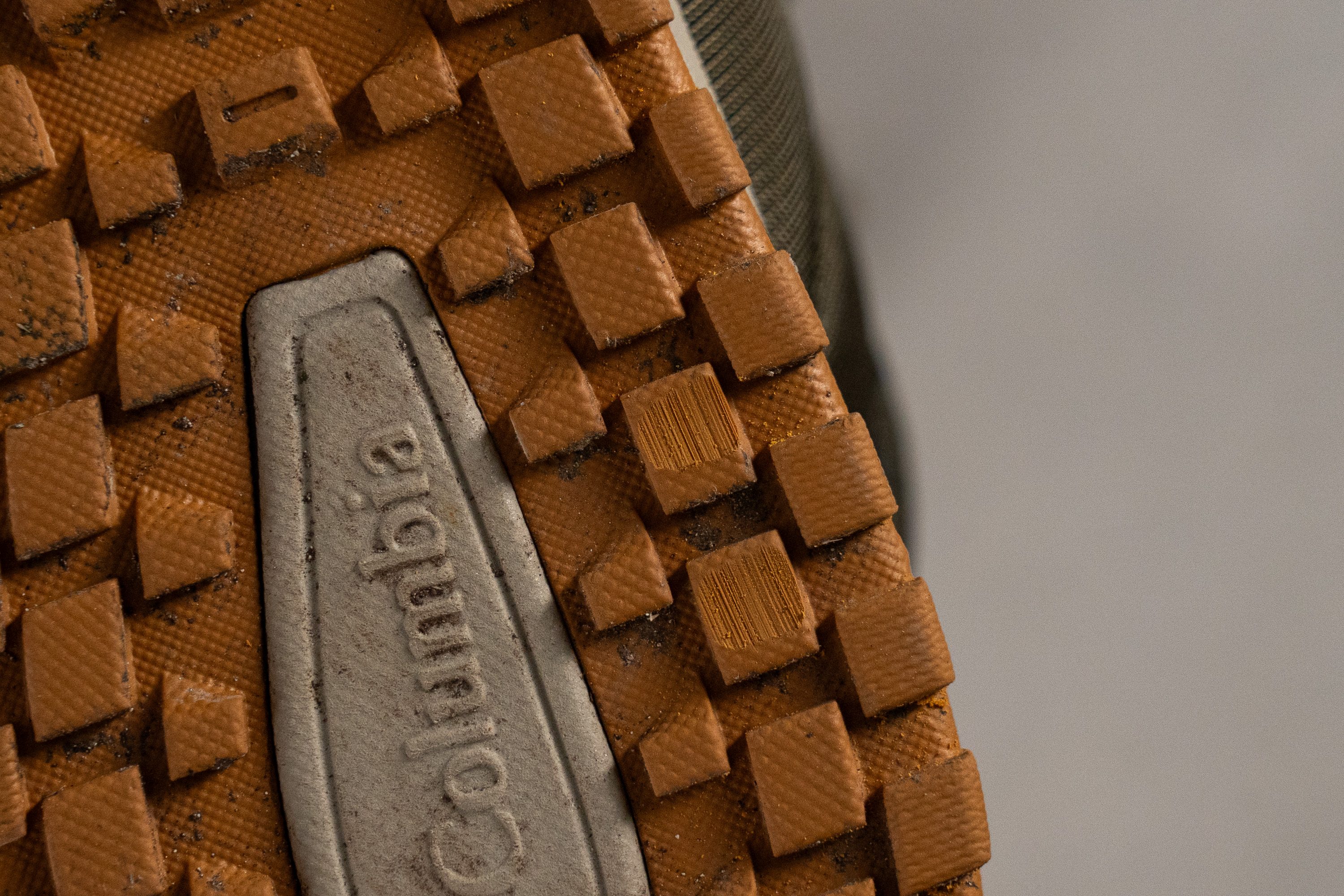
| Fairbanks Omni-Heat Boot | 1.0 mm |
| Average | 0.8 mm |
Outsole thickness
Finally, we had to know how much rubber there is on the Fairbanks.
Our caliper showed that the outsole without lugs is 3.0 mm thick. This is also the same as the average of hiking boots and is considered a solid amount of protection.
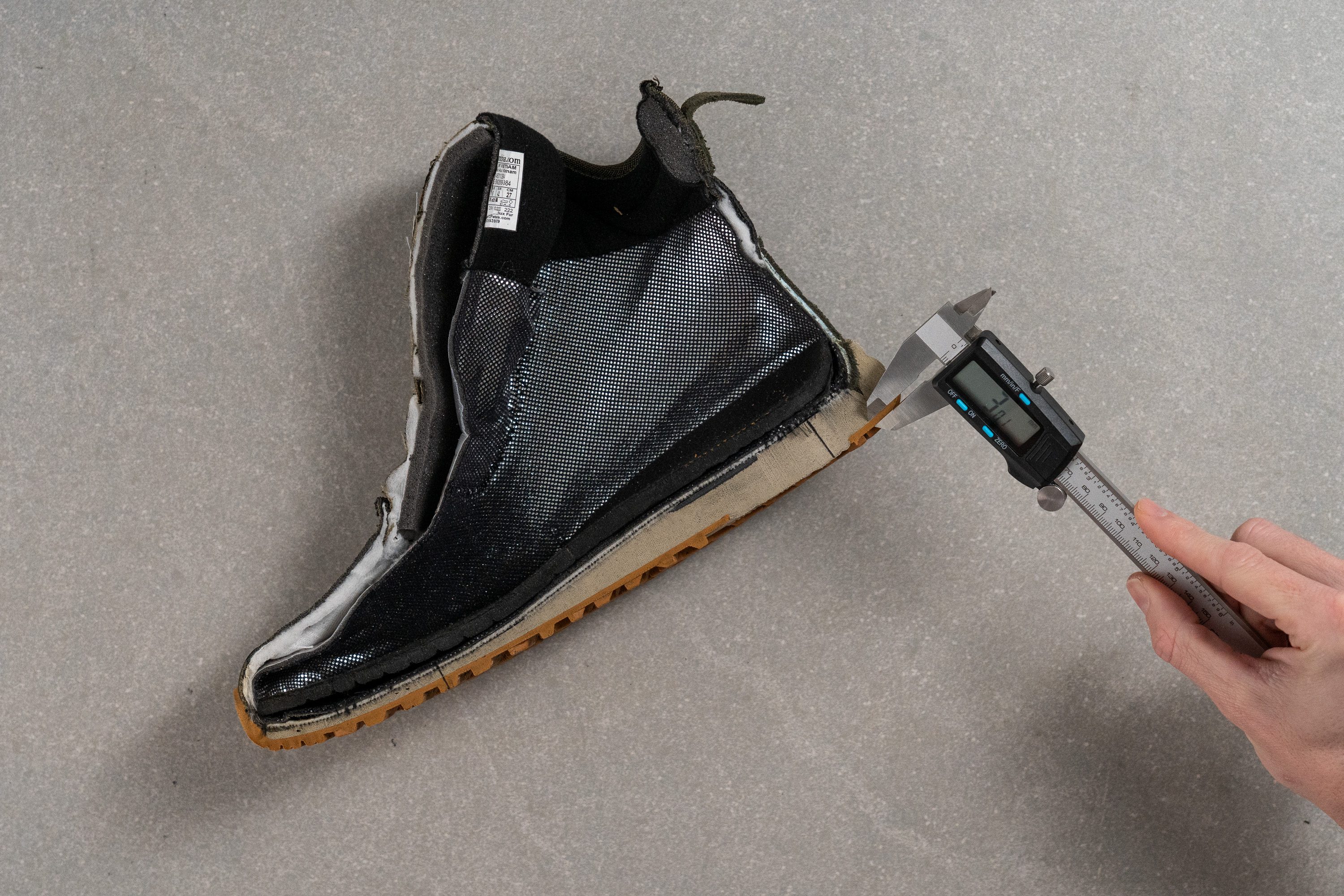
| Fairbanks Omni-Heat Boot | 3.0 mm |
| Average | 2.9 mm |
Misc
Insole thickness
The boot's cushioning wouldn't be complete without a well-padded insole.
In the Fairbanks, we found it to be 6.0 mm thick, which is perfect for a winter boot.
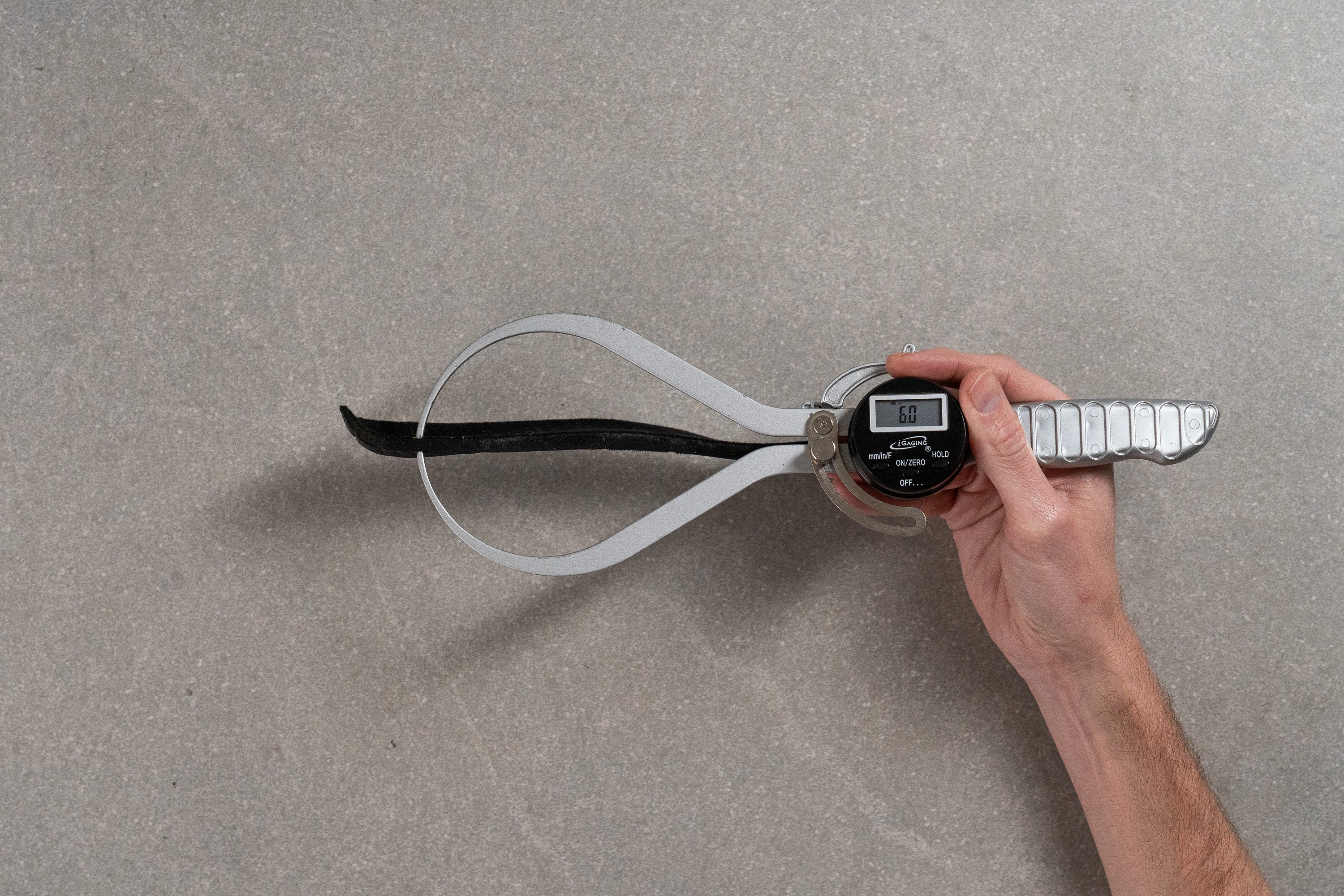
| Fairbanks Omni-Heat Boot | 6.0 mm |
| Average | 6.0 mm |
Removable insole
If you happen to need a custom pair of inserts, the boot's stock insole is easy to remove.
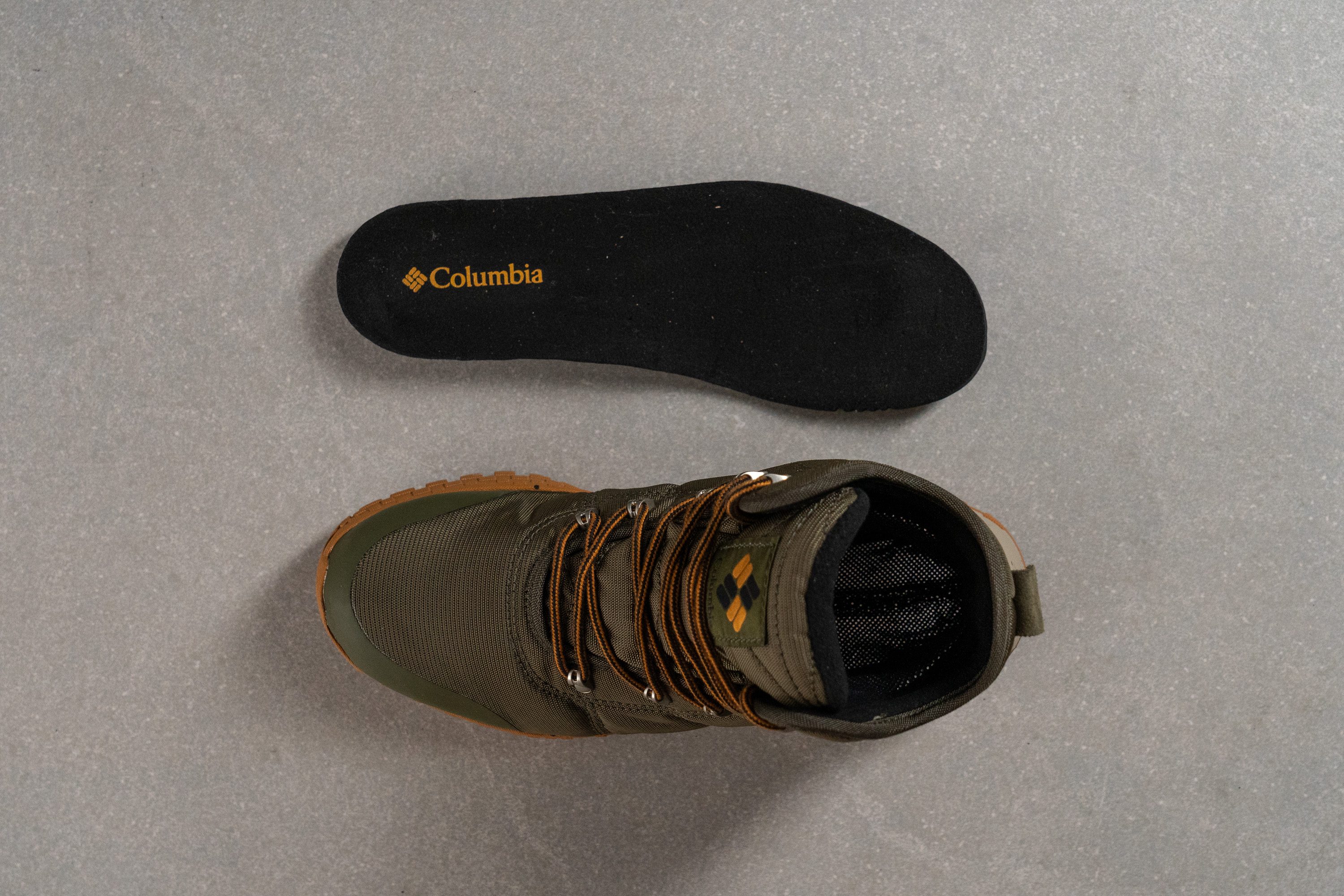
| Fairbanks Omni-Heat Boot | Yes |
Midsole softness in cold (%)
But most foams get significantly firmer in low temperatures. Does this Columbia boot also turn into a brick in winter?
As it turns out, it doesn't!
Having kept the Fairbanks in the freezer for 20 minutes, we repeated the durometer measurement. The foam did get 22.5% firmer but it was still softer than most boots at room temperature!
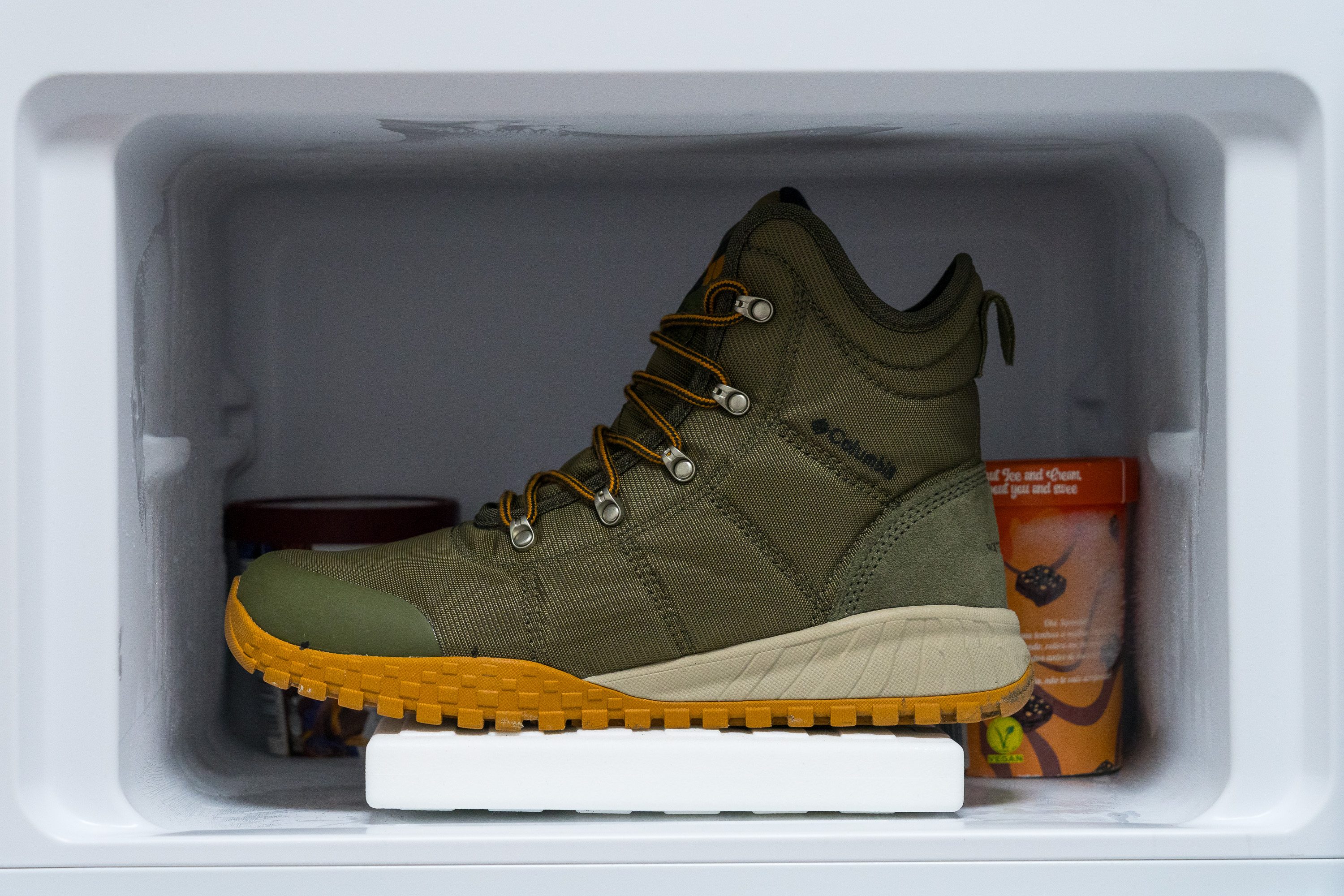
| Fairbanks Omni-Heat Boot | 23% |
| Average | 20% |
Reflective elements
Be careful when it gets dark! The Fairbanks Omni-Heat has no reflective elements on it.
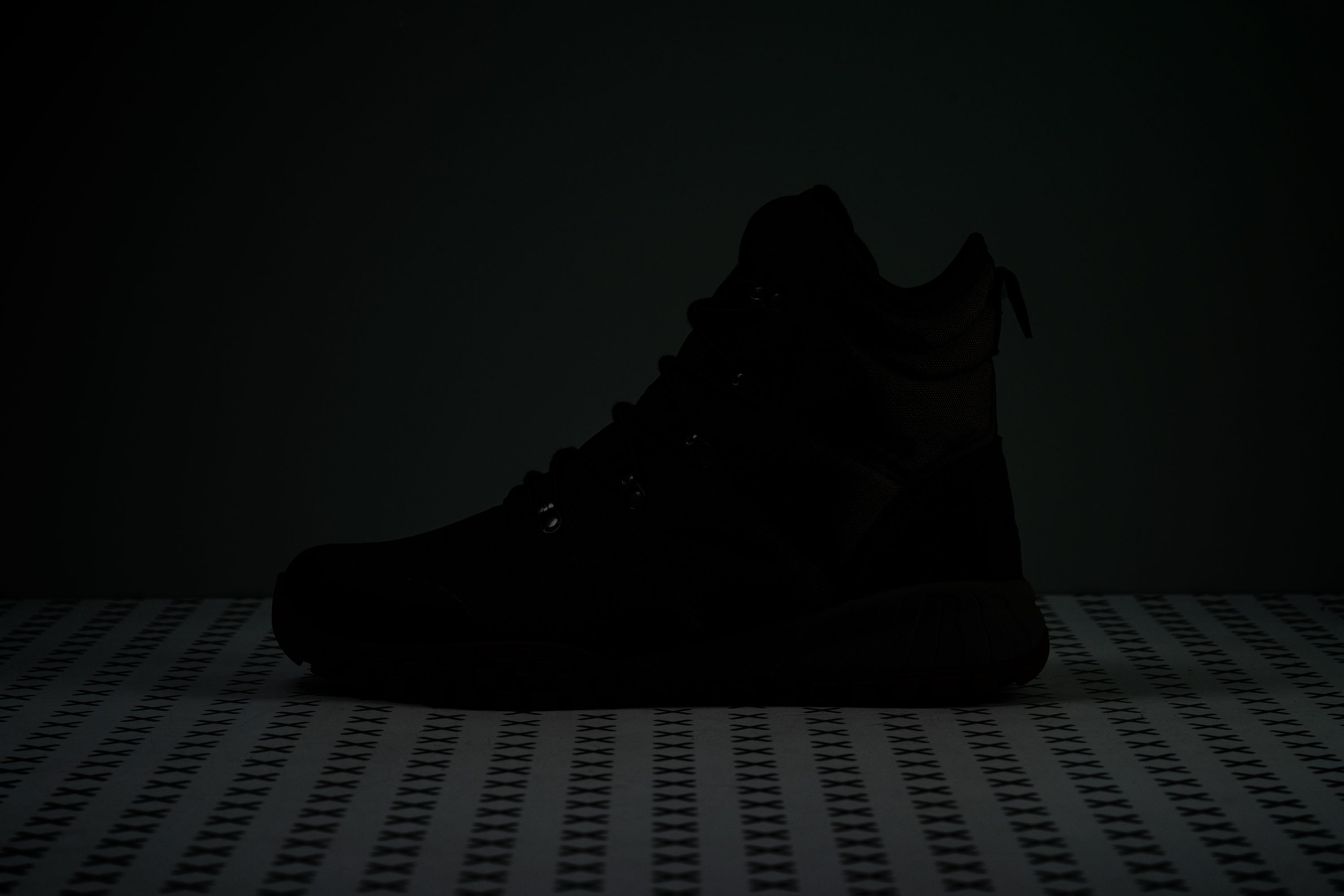
| Fairbanks Omni-Heat Boot | No |
Tongue padding
Despite packing 200g of insulation, the boot's tongue doesn't get too puffy. Measuring its thickness with a caliper, we got 9.2 mm - only slightly thinner than average.
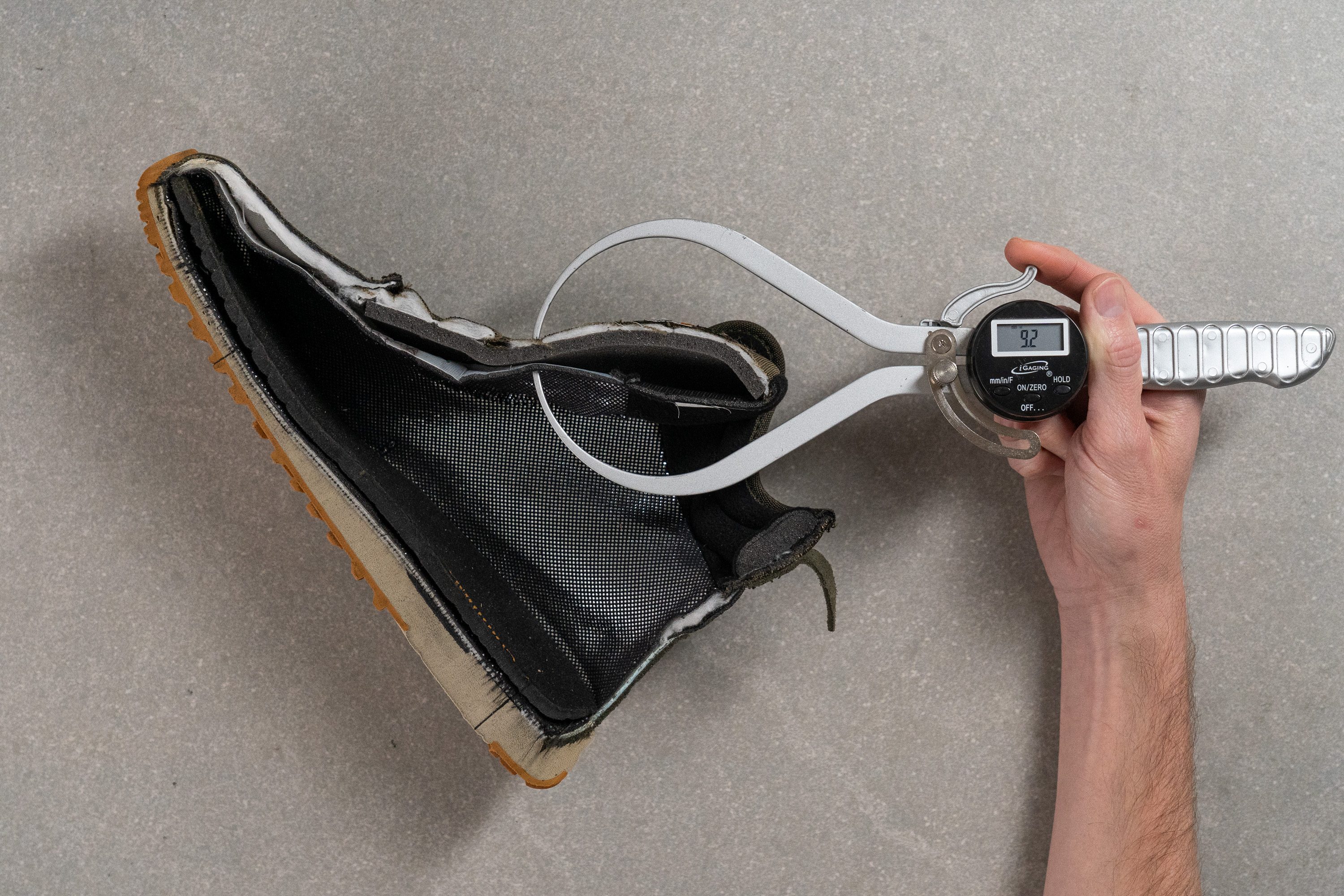
| Fairbanks Omni-Heat Boot | 9.2 mm |
| Average | 11.2 mm |
Tongue: gusset type
As expected from a waterproof and insulated boot, both sides of its tongue are fully attached (or gusseted). This is essential for keeping the interior warm and free from snow and debris.
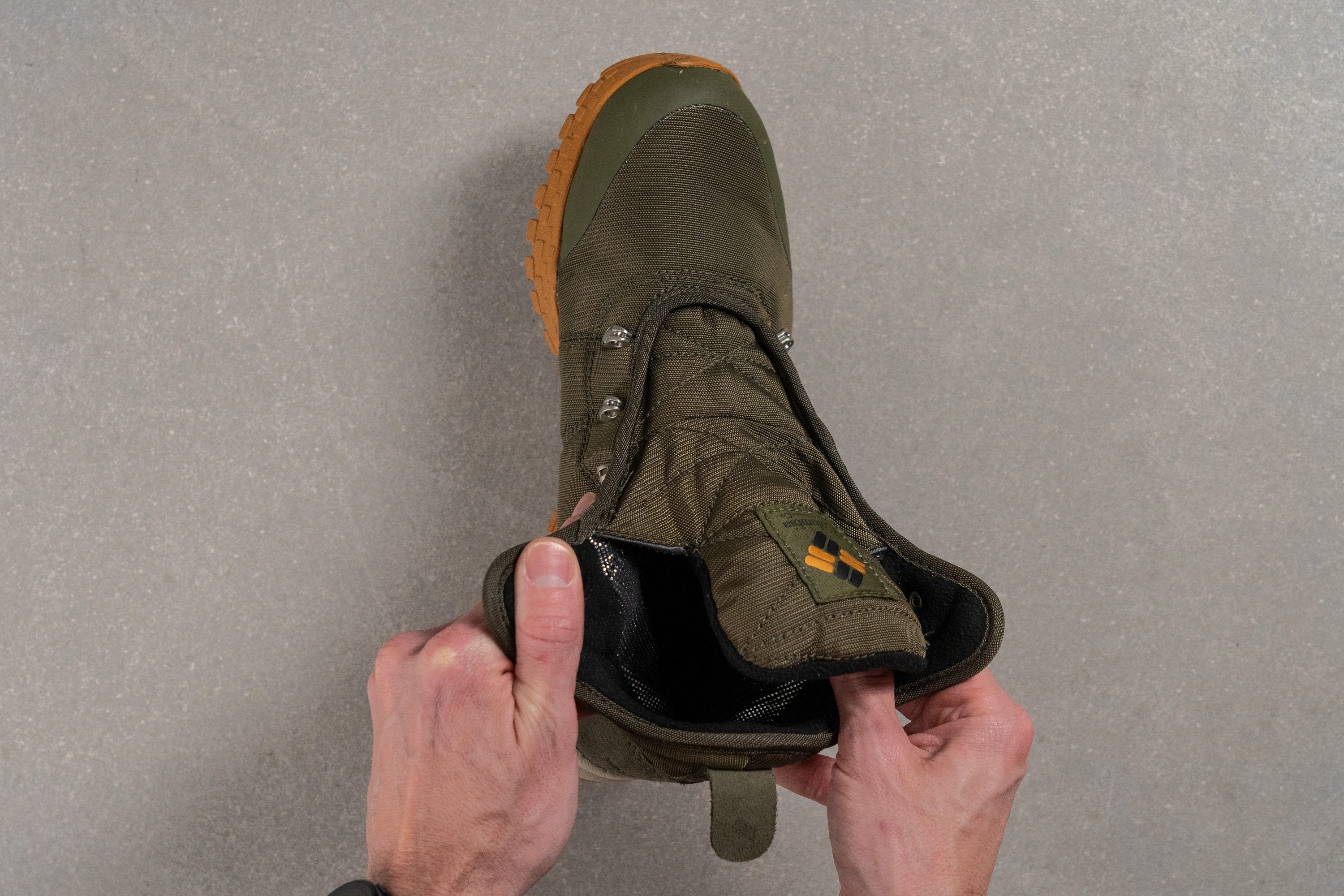
| Fairbanks Omni-Heat Boot | Both sides (full) |
Heel tab
Having a pull tab is really necessary in the Columbia Fairbanks Omni-Heat. Because of the boot's collapsing collar, it can be tricky to get it on fast.
But the problem is that the heel tab is made of suede and is a little slippery between the fingers. We would appreciate a finger loop here instead.
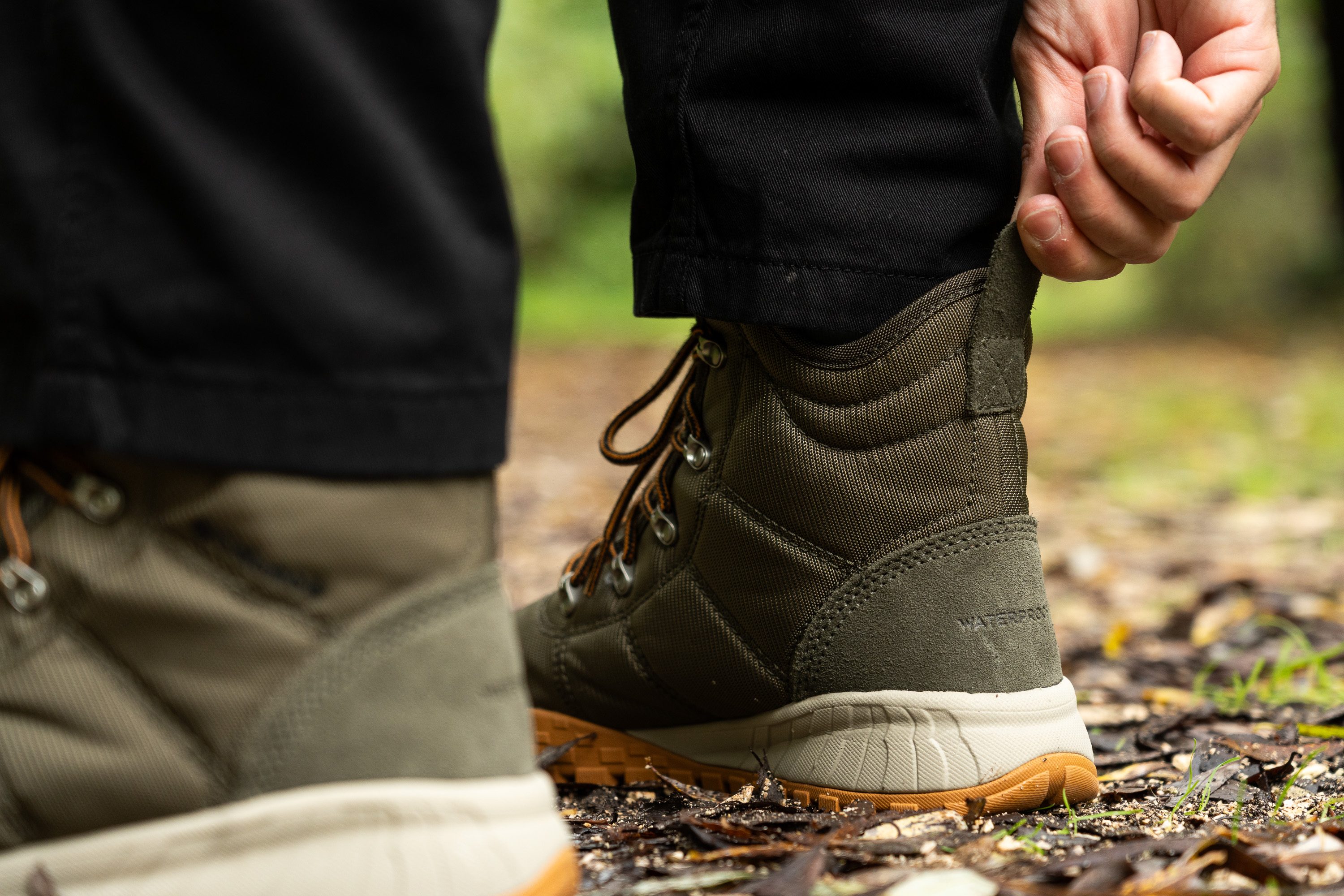
| Fairbanks Omni-Heat Boot | Pull tab |

